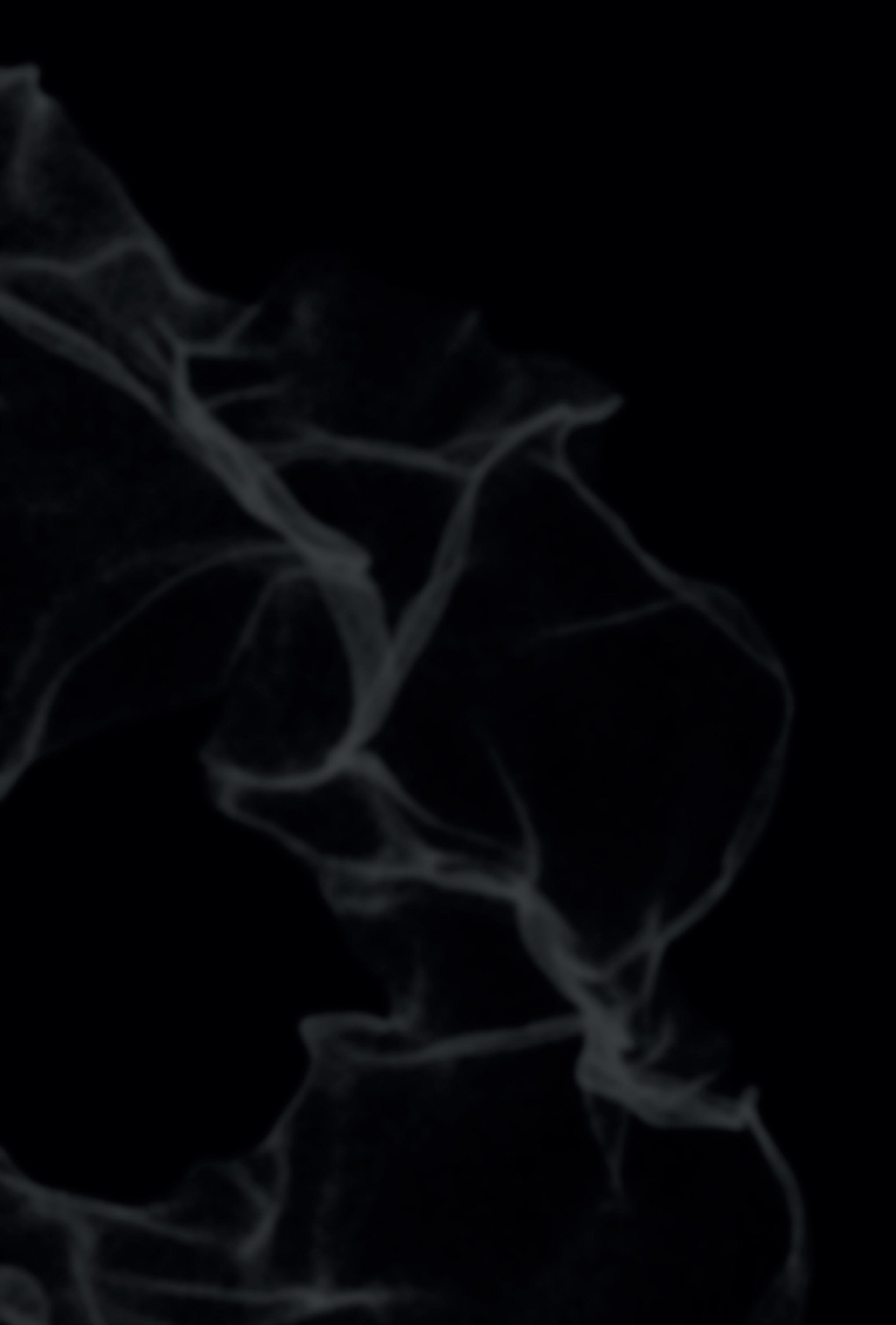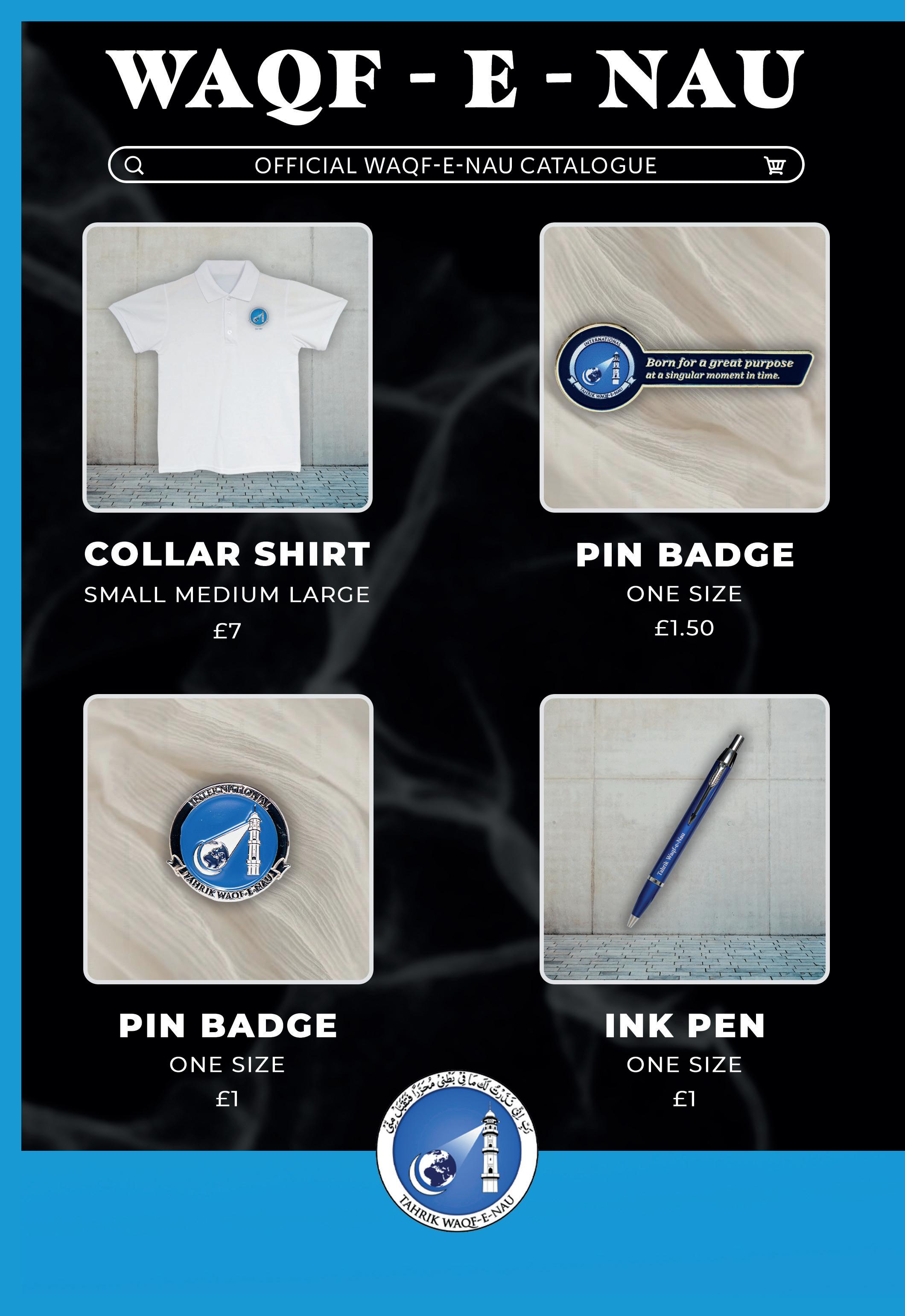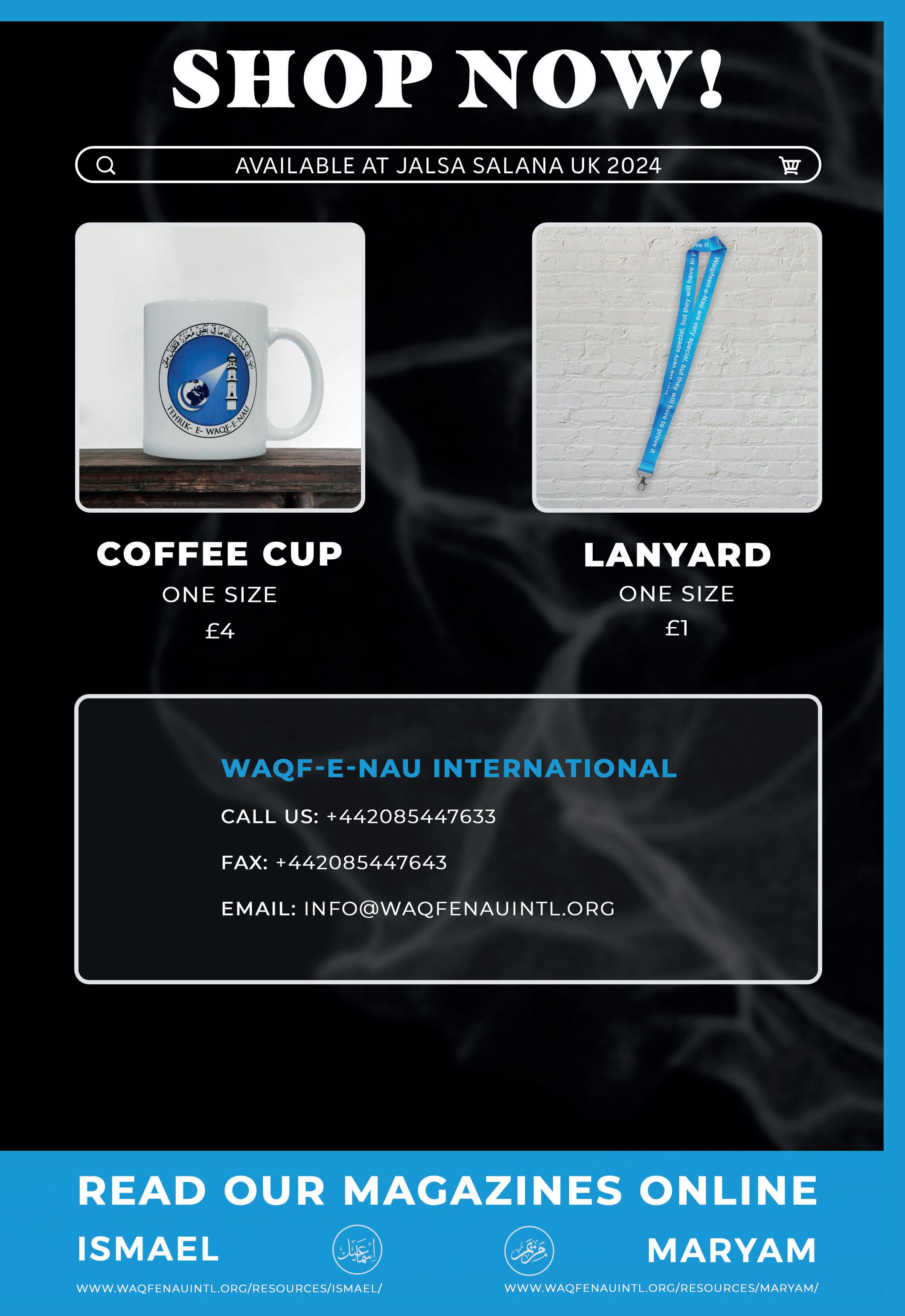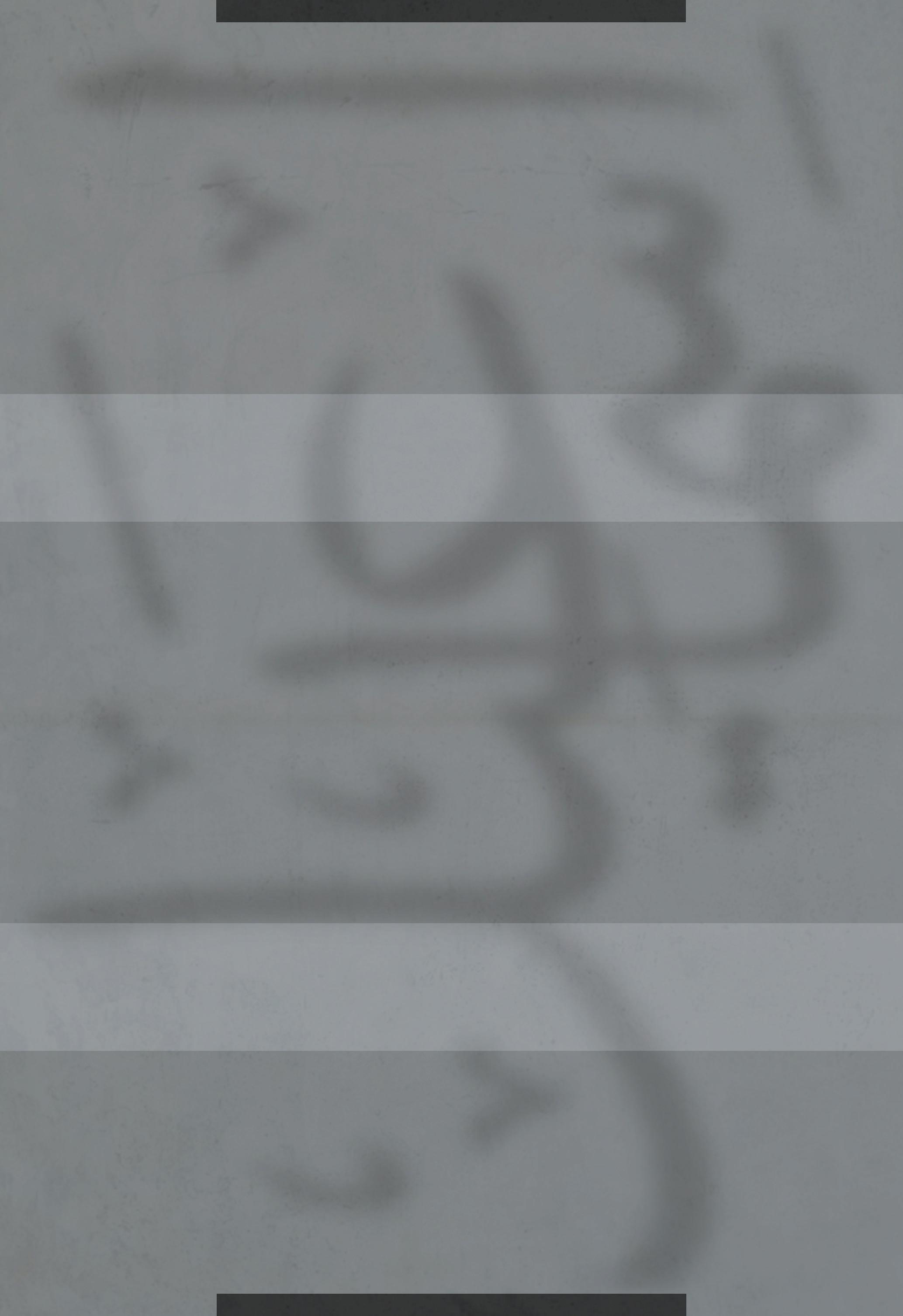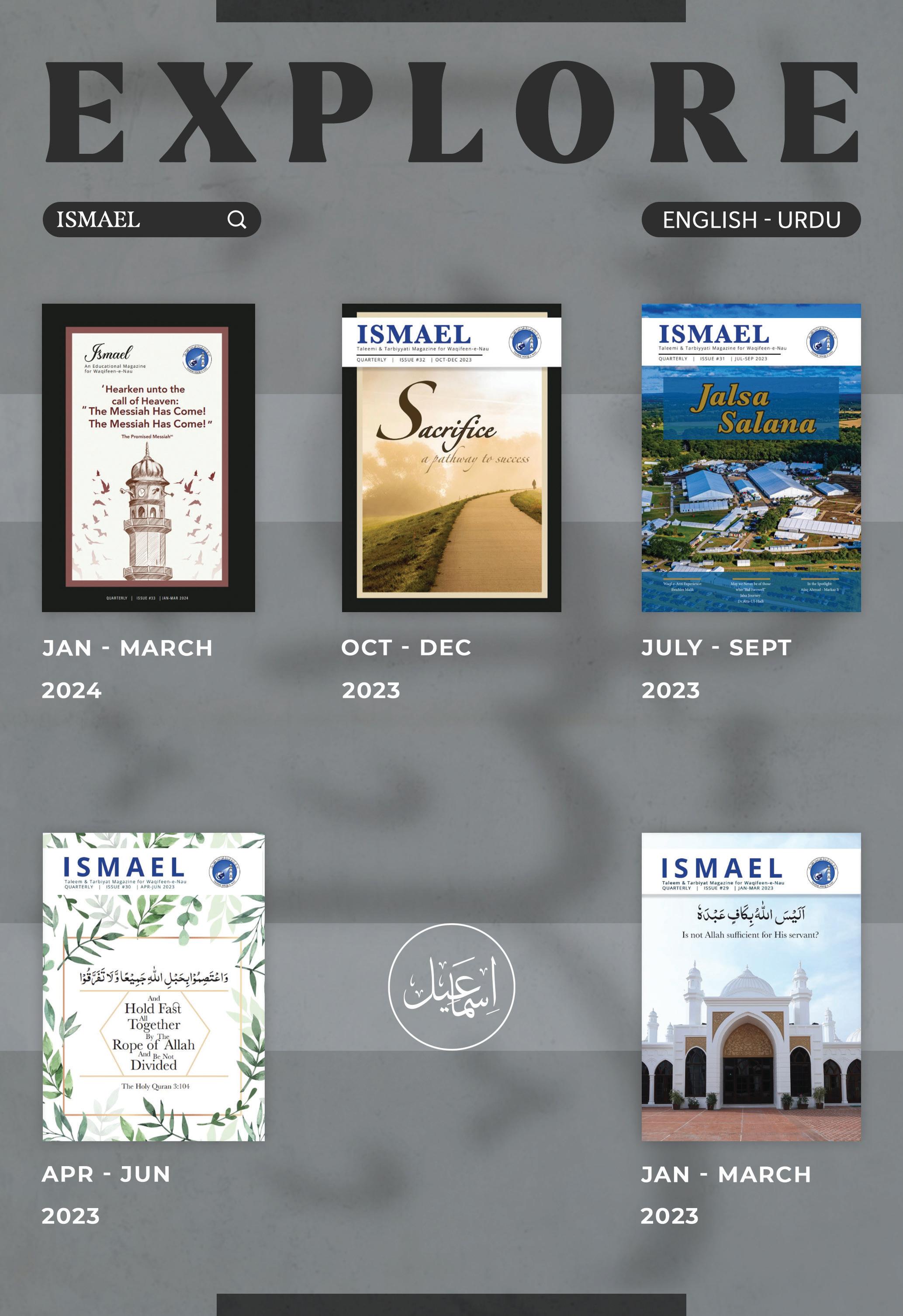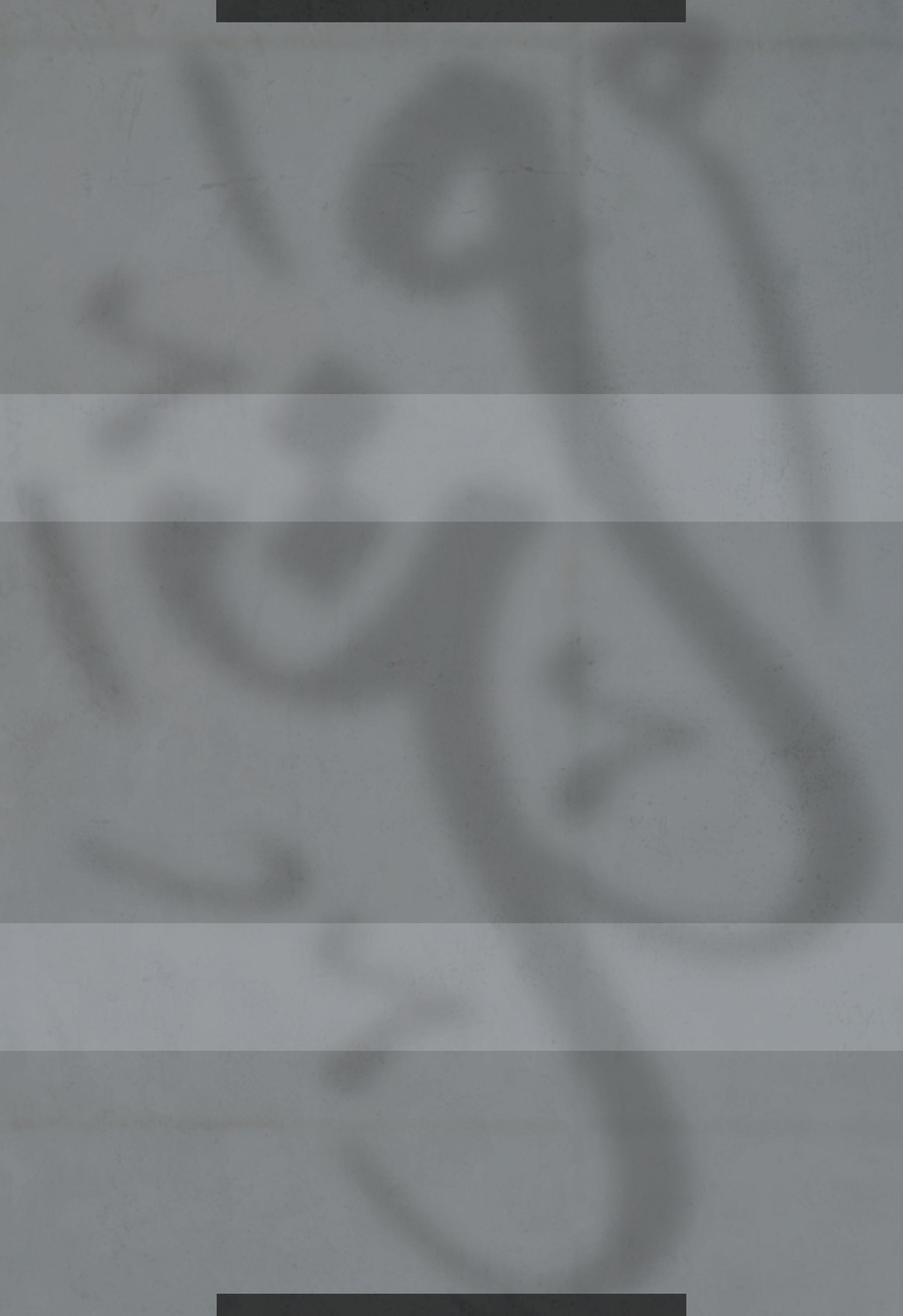ISMAEL
Taleemi & Tarbiyyati Magazine for Waqifeen-e-Nau


''Now is the time to stand up and discharge the sacred vow, initially made before your birth''
Hazrat Mirza Masoor Ahmad, Khalifatul Masih Vaa Waqf-e-Nau Ijtema UK, 26th May 2024

QUARTERLY | ISSUE #34 | APR-JUN 2024
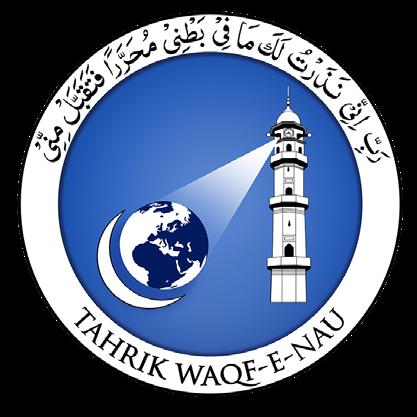




+44 (0)20 8544 7633
+44 (0)20 8544 7643 manager@ismaelmagazine.org editorenglish@ismaelmagazine.org editorurdu@ismaelmagazine.org

2 Follow the Central Waqf-e-Nau Department on @WAQFENAUINTL @WAQFENAUINTL WWW.WAQFENAUINTL.ORG
LONDON.
WAQF-E-NAU (CENTRAL) 22 DEER PARK ROAD,
SW19 3TL (UK)
@WAQFENAUINTL
“The magazine has been named as “ISMAEL”, which reminds us of the sacrifices made by Hazrat Ismaelas and by Hazrat Hajiraas
Hazrat Mirza Masroor Ahmedaba
Subscription
To subscribe to the 'Ismael Magazine' contact your national Secretary Waqf-e-Nau
UK- Anas Ahmad Rana waqfenau@ahmadiyyauk.org
Canada - Basil Raza Butt waqfnau@ahmadiyya.ca
USA - Mirza Harris Ahmad national.wn@ahmadiyya.us
Australia - Ataul Awal nsahmad@hotmail.com
Spain - Qaiser Malik qaismalik10@gmail.com
Belgium - Munir Ahmed Anjum waqfe.nau@ahmadiyya.be
Switzerland - Jariullah Zafarullah waqfenau@ahmadiyya.ch
Ireland - Attaur Rehman Khalid waqfenau@islamahmadiyya.ie
Mauritius - Mohsin Ahmad Ramjeet waqfenaumauritius@gmail.com
Sierra Leone - Shahid M. Korjie waqfenau.sl@gmail.com
New Zealand - Muhammad Yaseen yasinsec681@hotmail.com
Ghana - Hafiz Abdullah Mohammad sani waqf-e-nau@ahmadiyya.org.gh
France - Ashfaq Rabbani mrehman@hotmail.fr
3
contacts:
What is 'Ismael' The Holy Qur'an
Prophetsa
The Promised Messiahas
Pearls of Wisodm
Introduction to Waqf
‘Obedience to your faith and Jamaat is a prerequisite’
Report from Al-Hakam
4 CONTENTS
The Holy
07 08 09
10
11
14
12
Khalifa is Appointed by Allah
Noman Ahmed
The Great Works of Hazrat Khalifatul Masih
Shamail Ahmed
The Palestine-Israel Conflict from the Lens of Islamic Principles of War
Ata-ul-Karim Gohar
Waqf-e-Nau Ijtema Report
Bangladesh - 05 May 2024
Hasib Ahsan Ratan
MTA USA Spring Break
Bootcamp 2024
Ghaalib Khan
National Waqf-e-Nau Ijtema New Zealand Report
Meet the Team
Chief Editor & Manager: Luqman Ahmed Kishwar
English Editor: Talat Syam
Urdu Editor: Farrukh Raheel
Editorial Team:
Touqeer Tanvir
Farukh Arshad
Musharraf Ahmed
Talat Syam
Content manager: Noman Ahmed
Raheef Ahmad Muslun
Anas Mahmood
Cover design: Labeed Mirza
Farhad Ghaffar
Designing Team: Talat Syam (Lead Designer)
Ehtesham Ul Islam
Ehtesham Ahmad Arif
Asim Javed
Proofreading: Sadiq Ahmed
Anas Mahmood
Dr Mahmood
5
34
18
28
48
50
56
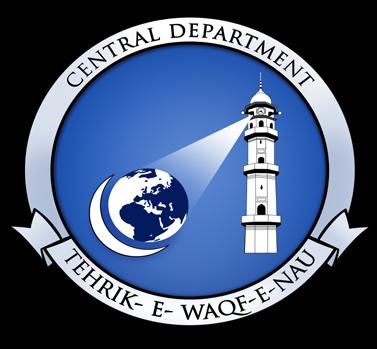

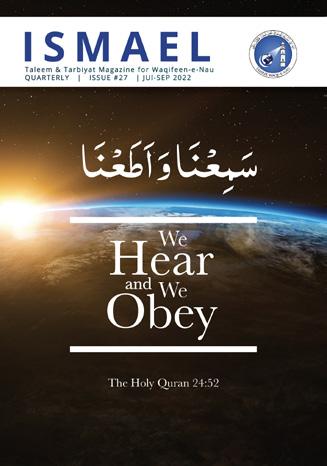
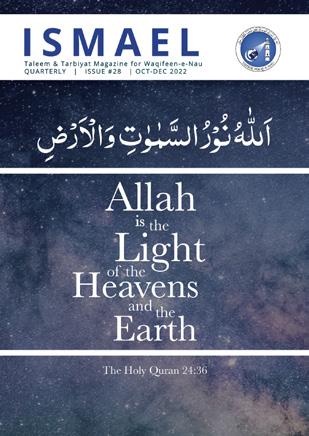
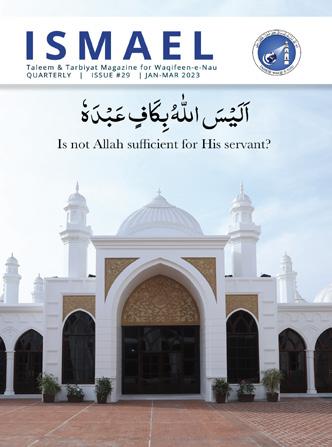
6 CALLING ALL We welcome all Waqifeen-e-Nau to volunteer for Ismael magazine and join our editorial team ARTICLE WRITERS, PROOFREADERS, DESIGNERS, SOCIAL MEDIA TEAM Contact: editorenglish@ismaelmagazine.org ISMAEL WAQIFEEN-E-NAU
What is the Ismael Magazine?
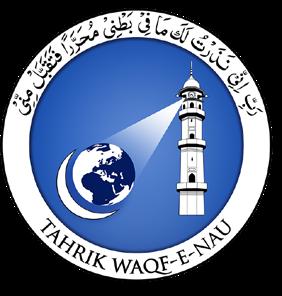
By the grace of Allah Ta'ala, Waqifeen-e-Nau are now spread across the globe, many of whom are studying in their respective fields while others have already fulfilled their pledge of dedicating their lives for the Jama’at. There are many who are Missionaries, practising Doctors, Television producers, Architects, Graphic designers, Engineers, Accountants and much more.
Ismael is an international magazine, which was launched in 2012 by Hazrat Khalifatul-Masih the fifthaba specifically for the Waqifeen-e-Nau around the world. At this auspicious occasion, addressing the Waqifeen-e-Nau Huzoor-e-Anwaraba wrote:
“The magazine has been named as “ISMAEL”, which reminds us of the sacrifices made by Hazrat Ismaelas and by Hazrat Hajiraas who spent their lives in a desolate and barren place and instituted exceptional standards of sacrifices for the sake of religion. Likewise, it is expected of every Waqf to uphold the covenant of Waqf (dedication) made by their parents even before their birth, who have in turn themselves reaffirmed the same.”
Waqifeen-e-Nau can contribute by sending articles regarding their respective fields of studies. This magazine is published on a quarterly basis as a platform for the Waqifeen-e-Nau to get in touch and express what they have always wanted to. To subscribe to this magazine, you can contact your National Waqf-e-Nau Secretary. You can also read the magazine online at: www.waqfenauintl.org/resources/ismael
Remember, this magazine is for the Waqifeen-e-Nau, prepared by the Waqifeen-eNau. Everyone is welcome to send their articles, contributions and comments. Ismael magazine is the central magazine for Waqifeen-e-Nau from around the globe.
7
The Holy Quran
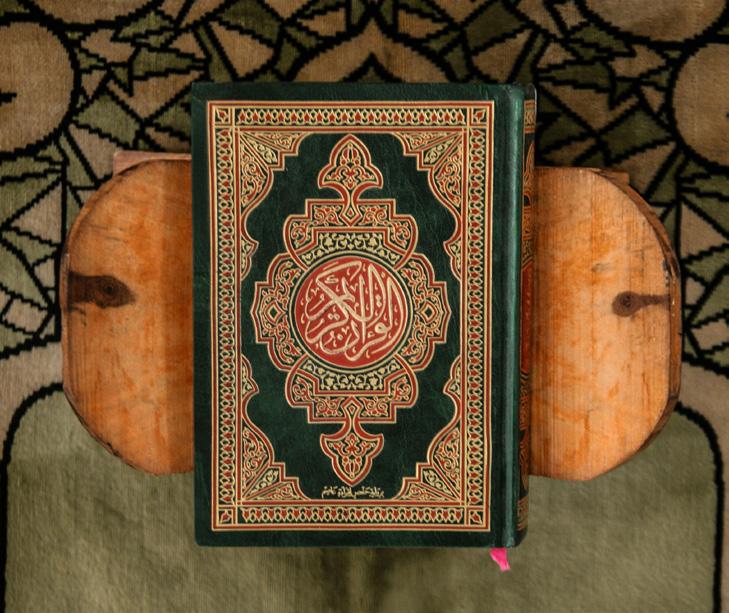
And hold fast, all together, by the rope of Allah and be not divided; and remember the favour of Allah which He bestowed upon you when you were enemies and He united your hearts in love, so that by His grace you became as brothers; and you were on the brink of a pit of fire and He saved you from it. Thus does Allah explain to you His commandments that you may be guided. And let there be among you a body of men who should invite to goodness, and enjoin equity and forbid evil. And it is they who shall prosper.
The Holy Qur'an 3:104-105
8
مِیۡحِرَّلا نِمٰحِرَّلا للّٰہِا مِسۡبِ مِکُیۡلَعَ للّٰہِا تَمٰعۡنِ اوۡرَّکُذۡاوۡ اوۡقُرَّفَتَ لَاوۡ اعۡیۡمٰجَ للّٰہِا لِبۡحَبِ اوۡمٰصِتَعَاوۡ مِتَنۡکُوۡ انِاوۡخِۡا ہٖۤتَمٰعۡنۡبِ مِتَحَبۡصۡافَ مِکُبِوۡلَقُ نِیۡبِ فَلافَ ءًآدَعَ ا مِتَنۡکُ ذِۡا ہٖۤتَیٰ ا مِکُل للّٰہِا نِیۡبۡیٰ کَلذٰکُ اہَنۡمِّ مِکُذٰقَنِافَ رِانۡلا نِمِّ ۃٍرَّفَحِ افَشَ یلَعَ نَوۡرَّمِّایٰوۡ رَّیۡخَلا یل ا نَوۡعَدَیٰ ۃٌمِّ ا مِکُنۡمِّ نِکُتَلوۡ ﴾۱۰۴﴿ نَوۡدَتَہَتَ مِکُلَعۡل ﴾۱۰۵﴿ نَوۡحَلَفَمٰلا مِہُ کَئِلوۡ اوۡ رَّکُنۡمٰلا نِعَ نَوۡہَنۡیٰوۡ فِوۡرَّعۡمٰلابِ
''It is binding on a Muslim to listen to and to carry out an order issued by his officers whether he likes it or not, except when it involves the violation of a commandment [of God or His Prophet or of a superior officer]. But when it involves the violation of a commandment [of God or His Prophet or of a superior officer], then one should not listen to it or carry it out.''
Sahih al-Bukhari 7144
9
للّٰهُا لَّىصَ بِيِّنَّلا نِعَ ـ هنَّعَ للّٰهُا ضِىَرَ ـ للّٰهُا دِبْعَ نِعَ ءِرْمَلا لَّىعَ ةُعَاطَّلاوَ عُمَسَّلا " لَاقَ مَلَّسَوَ هيْلَّعَ ،ةُيْصِعْمَبِ رْمَؤْيُ مَل امَ ،هَرْكَوَ بَّحَ ا امَيْفِ ،مَلَّسَّمَلا ةُعَاطَ لاَوَ عُمَسَ لاَفِ ةُيْصِعْمَبِ رْمَأُ اذَإِفِ
Hadith
The Promised Messiahas
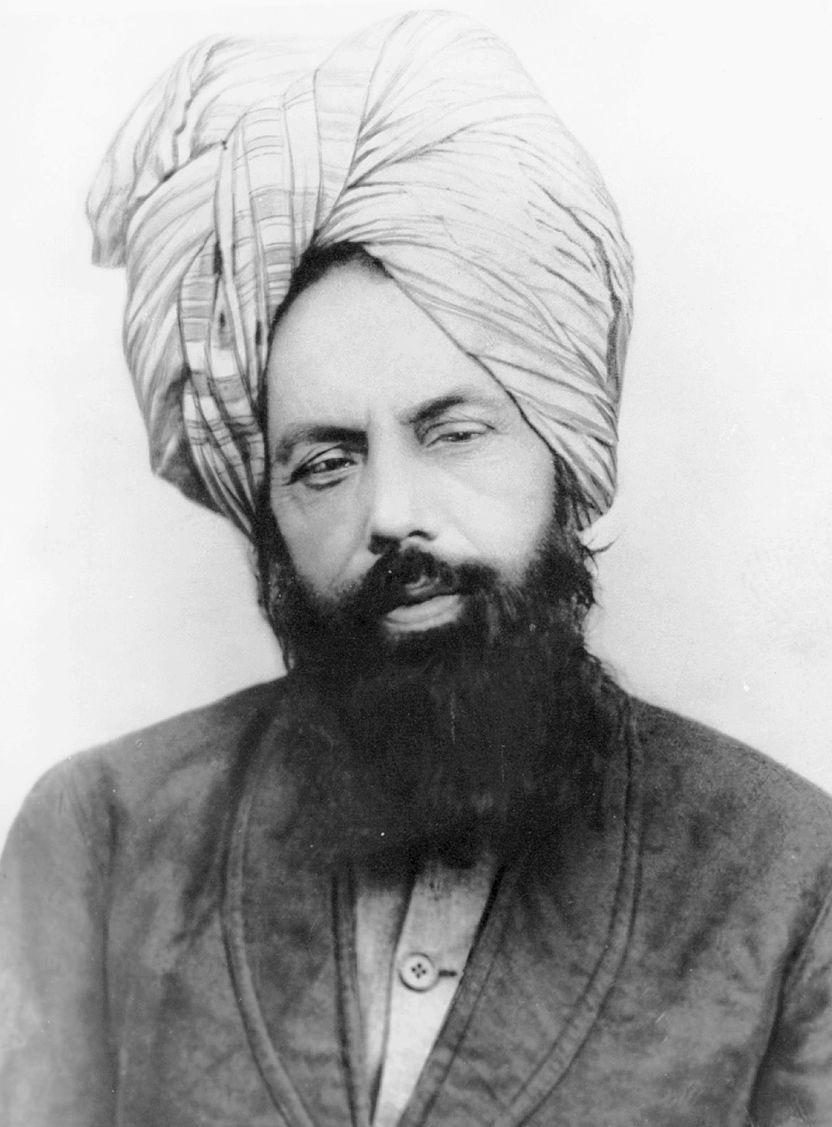
''A person can be held to be a Muslim when the whole of his being together with all his faculties, physical and spiritual, is devoted to God Almighty, and the trusts that are committed to him by God Almighty are rendered back to the True Giver. He should demonstrate his being a Muslim not only doctrinally but also in practice. In other words, a person claiming to be a Muslim should prove that his hands and feet, heart and mind, reason and understanding, anger and compassion, meekness and knowledge, all his physical and spiritual faculties,
honour and property, comfort and delight, and whatever pertains to him from the top of his head to the soles of his feet together with his motives, fears and passions, have all been subordinated to Almighty God as a person's limbs are subordinated to him. It should be proved that his sincerity has reached a stage in which whatever is his does not belong to him but to God Almighty, and that all his limbs and faculties have become so devoted to the service of God as if they had become the limbs of the Divine.''
(Essence of Islam Vol 1, page 21-22)
10
Pearls of Wisdom
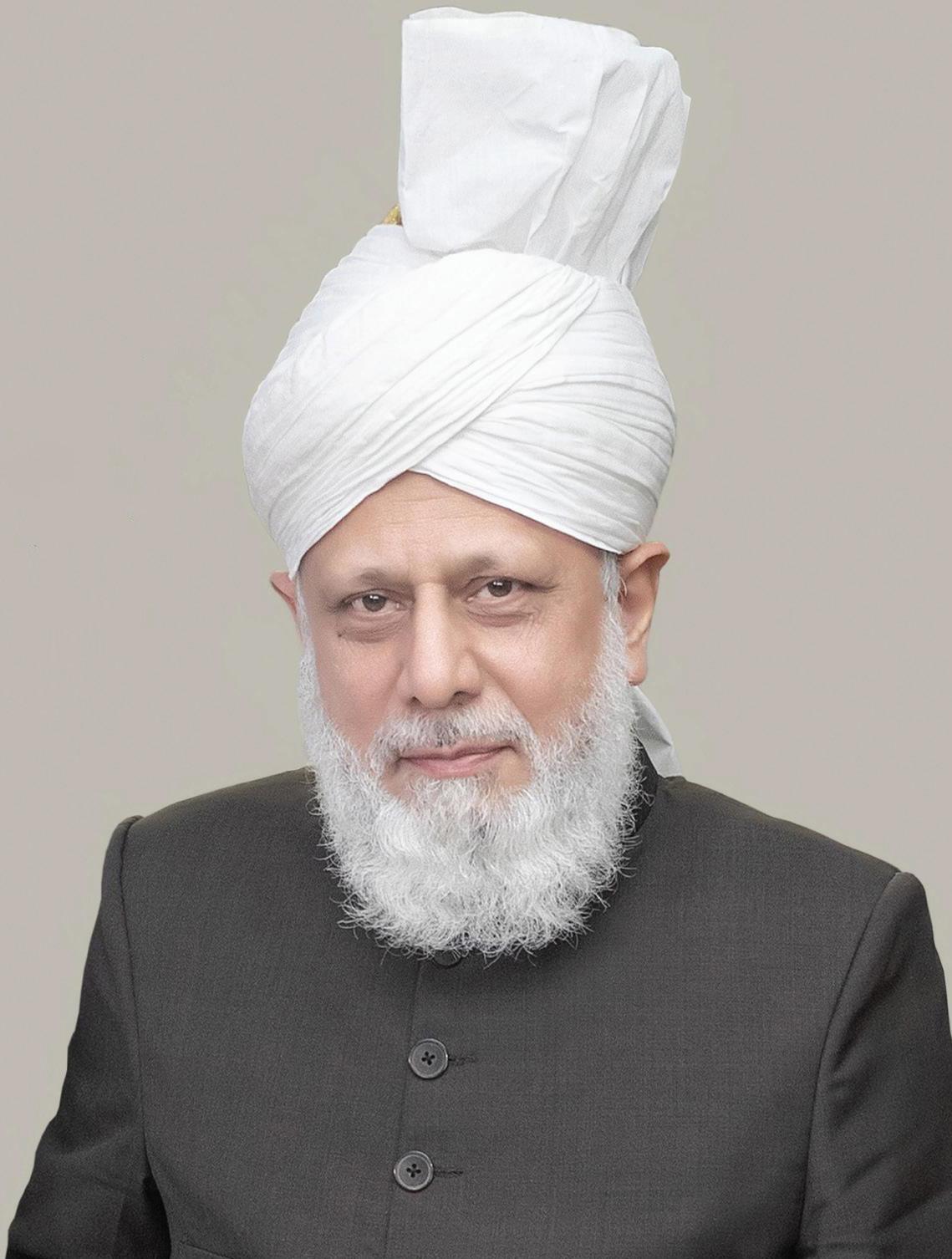
“Obedience is the chief means of strengthening the bonds of unity amongst communities. In fact, the Promised Messiah (peace be upon him) has said that no nation or community can thrive until its members possess the qualities of devotion, sincerity and loyalty to their Imam.”
(Concluding session UK National Waqfe-e-Nau Ijtema 26 May 2024)
11
Introduction to Waqf
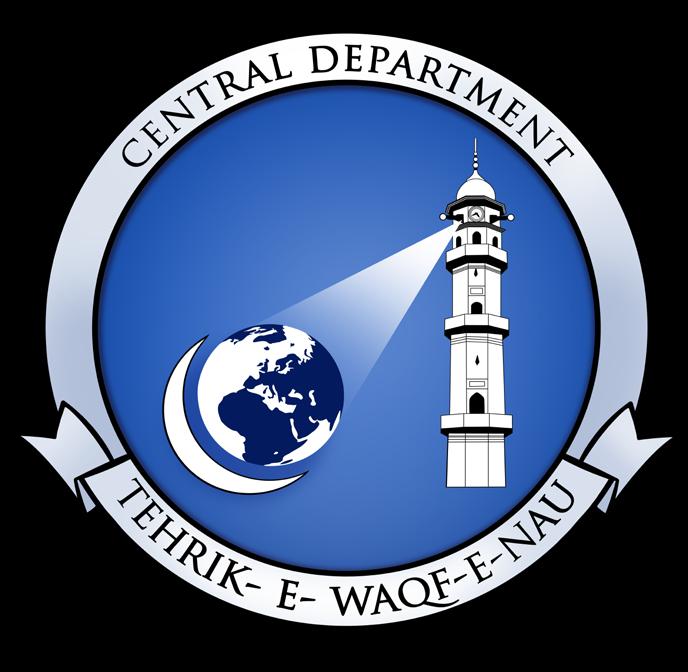
The act of devoting one's children to the service of Allah is deeply embedded in the fabric of Islamic faith and tradition. It finds its roots in the noble examples set by prophets and righteous individuals throughout history, as well as in the teachings of the Quran and the sayings of the Prophet Muhammadsa
The earliest example of devotion we can see from a father is that of Hazrat Abrahamas, to which Allah the Almighty acknowledges that
sacrifice his beloved son, Hazrat Isma'ilas, upon the command of Allah serves as an eternal testament to the depth of faith and trust one should have in Allah the Almighty. This act of devotion earned Hazrat Abraham the title of "Friend of Allah".
The Promised Messiah, the Imam of the Time, Hazrat Mirza Ghulam Ahmadas has laid out his expectations of his community as he states:
''The intention of Islam is to make many Abrahams. So each one of you should strive to become Abrahamas. I tell you the truth:
And of Abraham who fulfilled the Divine commandments. (53:38)
The example of Hazrat Abrahamas stands as a paramount example of parental devotion and submission to the will of Allah. His unwavering obedience and readiness to
‘Do not become a mere follower of a wali [saint], instead become a wali yourself; and do not become a mere follower of a pir [holy person], instead become a pir’'' (Malfuzat [1988], Vol. 2, p. 139)
The earliest example of devotion we can see from a mother is that of Hazrat Maryamas. The dedication of Hazrat Maryamas as mentioned in the Quran, exemplifies the profound commitment of a parent to consecrate their child to the service of Allah even before birth. Hazrat Maryam'sas unparalleled piety and devotion earned her a lofty status among women in Islam and she serves as a beacon of virtue for all
12
یفّٰۤوَ یۡذِلَّا مَیۡہِرٰبۡاوَ
بنولیوبلکہ۔بنونہستپرلیو بنوپیربلکہ۔بنونہستپرپیرروا
believers. In the Holy Quran it states:
Remember when the woman of ‘Imran said, ''My Lord, I have vowed to Thee what is in my womb to be dedicated to Thy service. So do accept it of me; verily, Thou alone art All-Hearing, All-Knowing.''
(3:36)
Hazrat Maryam has been exalted to such status that the Holy Prophetsa has said that: ''Mary, the daughter of 'Imran, was the best among the women (of the world of her time) and Khadijara is the best amongst the women. (of this nation).''
(Sahih al-Bukhari 3432 Book 60, Hadith 103 )
The Holy Prophetsa has also stated:
''The best of women among the people of Paradise are Khadija bint Khuwaylid, Fatimah bint Muhammad, Maryam bint ‘Imran, and ‘Asiyah bint Muzahim, the wife of Pharaoh.''
(Musnad Ahmad 2896)
Allah the Almighty has exalted the status of these parents greatly due to their devotion to Allah All mighty and their willingness to present their children before His threshold.
The fourth Caliph of the Promised Messiah, Hazrat Mirza Tahir Ahmadrh, has beautifully expounded regarding the aforementioned verse of the Holy Quran by stating that:
''Mothers should pray in this way, and fathers should pray to Allah the Almighty like Abrahamas that may Allah the Almighty choose our children for His cause
and make them His servants. And in the coming century, a great army of life devotee children should come in such a way that they are shunning worldly desires and entering this century as the servants of the God of Muhammadsa, the Prophet of Allah. We should be dedicating our infants as a gift in the way of Allah the Almighty.
(Hazrat Mirza Tahir Ahmad, Khalifatul Masih IVrh, Friday Sermon, 3 April 1987)
In the modern era, the institution of Waqf-e-Nau, established by Hazrat Mirza Tahir Ahmadrh, the fourth Caliph of the Promised Messiahas, embodies the spirit of devoting children for the sake of Allah. This initiative encourages parents to dedicate their children to the service of Islam even before their birth, instilling in them a sense of purpose and commitment to the faith. Through Waqf-e-Nau, families pledge to raise their children with the intention of serving the cause of Islam in various capacities, whether through religious education, missionary work, or other avenues of service.
“It is necessary to dedicate your life in the way of Allah the Almighty and in fact, this is Islam and this is the sole purpose of my advent.”
(Malfuzat [1988], Vol. 2, p. 138)
Ultimately, devoting one's children to Allah is a profound act of faith and submission, reflecting the belief that true success and fulfilment can only be found by living a life in accordance with the will of Allah. It is a testament to the deep love and devotion that parents have for their children, seeking not only their happiness and well-being in this world but also their eternal salvation in the Hereafter.
13
یۡنِّمِ لۡبَّقَتَفَ ارًرَّحَمِ یۡنِّطۡبۡ یفّٰۤ امِ کَلَّ تُرًذِنَ ینِّا بِّرً نَرٰمۡعِ تُارٰمِا تِلَّاقَ ذۡا مَیۡلِعَلَّا عُیۡمۡسَّلَّا تِنَا کَنَا
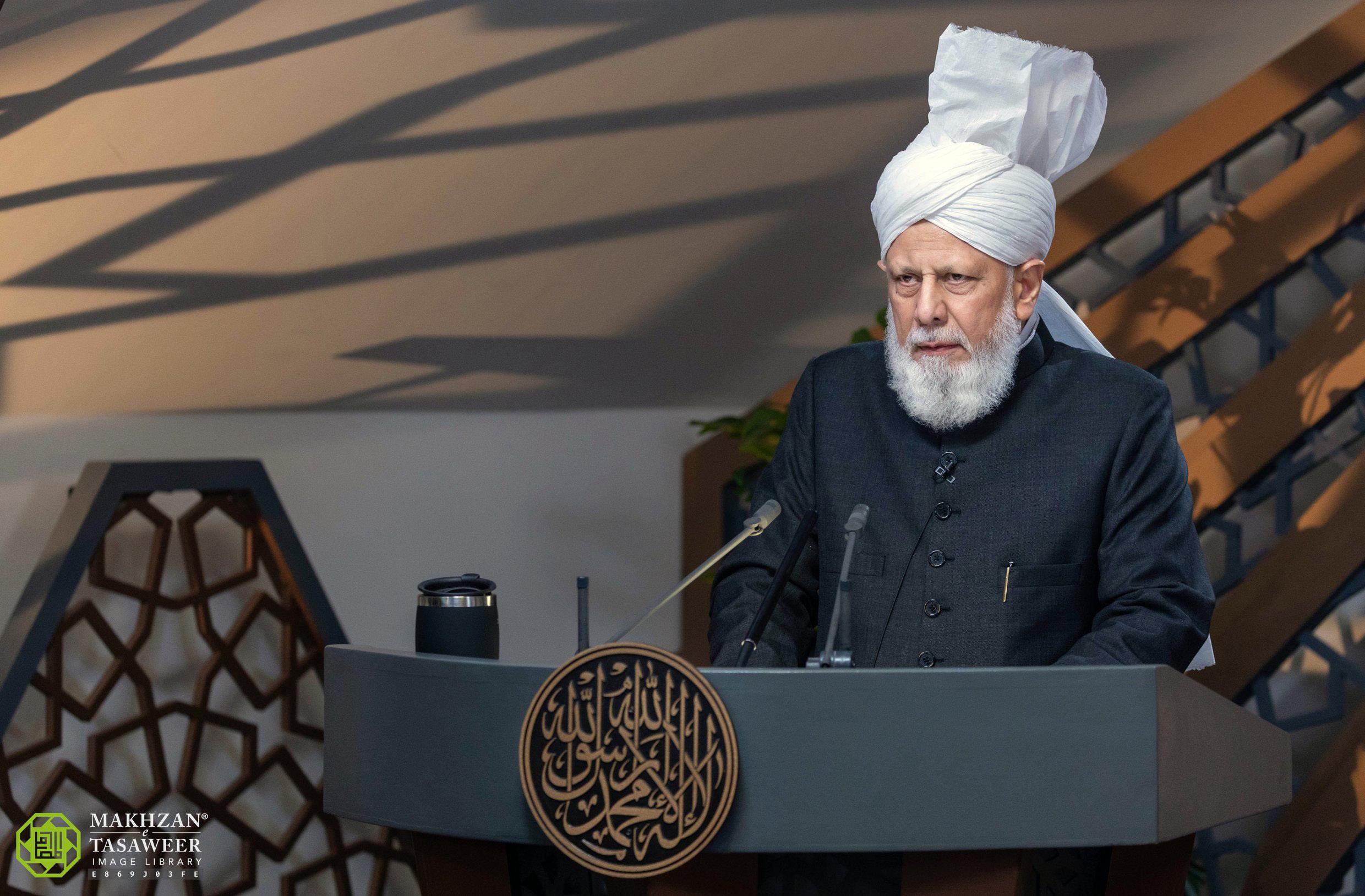
‘Obedience to your faith and Jamaat is a prerequisite’: Huzoor’s guidance to Waqifeen-e-Nau at UK Ijtema 2024 Report Taken from Al-Hakam
14
On Sunday evening, 26 May, Hazrat Amirul Momineen, Khalifatul Masih V, may Allah be his Helper, presided over the UK’s Waqifeen-e-Nau Ijtema 2024. The event took place at Baitul Futuh in London, with Huzooraa gracing the occasion via livestream from Islamabad, UK.
Hazrat Khalifatul Masihaa conveyed “Assalamu alaikum,” and invited Raheel Ahmad Sahib to recite a portion of the Holy Quran (Surah Aal-e-Imran, verses -103 105). Muzaffar Ahmad Sahib and Rohaam Khan Sahib provided the Urdu and English translations of these Quranic verses, respectively. Subsequently, Jazib Cheema Sahib presented an Urdu poem authored by Hazrat Musleh-e-Maudra, followed by its English translation by Adeel Tahir Sahib.
Huzooraa then invited Anas Rana Sahib, secretary waqf-e-nau UK to give the ijtema report. He mentioned that the waqifeen were divided into groups of 25, and assigned a group leader. The group leaders guided them throughout the ijtema and observed all members. He then highlighted various activities that took place during the ijtema, i.e., workshops, lectures, questions and answers sessions, etc. According to the record, there are a total of 3899 boys in the tajneed, out of which 3144 are over 7 years old. The total attendance of this year’s Waqfe-Nau Ijtema was 1641, i.e., 51 percent of the total tajneed, that shows an increase of 10 per cent this year as compared to the previous one.
Hazrat Amirul Momineenaa then took to the podium and delivered his address. After reciting tashahhud and ta‘awwuz, Huzooraa said:
“Today, with the grace of Allah, you have had the opportunity to participate in the national Waqf-e-Nau Ijtema. I hope and pray that whatever positive and beneficial things you have learned come to form a permanent feature of your life.”
Huzooraa said that for the progress and well-being of any nation or community, it is of the outmost importance that its youth are of high moral standing and educated.
The followers of the Holy Porphetsa must live according to the teachings of Islam, only then can they be considered true Muslims. The Promised Messiahas emphasised this point to members of the Jamaat. On one occasion, he said:
“Allah the Almighty desires to make his community for all others.” This means that Allah desires the followers of the Promised Messiahas to uphold Islamic teachings in all aspects of their life.
Hazrat Amirul Momineenaa stated that every member of Waqf-e-Nau must carefully read and study the Holy Quran as it is the ultimate source of guidance. Likewise, many precepts of Allah have reached us by the hadith and sunnah of the Holy Prophetsa. In addition to them, Ahmadis must read the books of the Promised Messiahas.
It is particularly important for Waqf-eNau members to strive and increase their religious knowledge.
15

Obedience
Hazrat Khalifatul Masihaa said:
“One key point I wish to bring to your attention is the importance of obedience.” It is the chief means of strengthening the bonds of unity in community. The Promised Messiahas said that no nation can thrive until its members possess the quality of devotion, sincerity and loyalty to their Imam.
Huzooraa said young people sometimes ask
why should we do this and why shouldn’t we do that. One should ponder over the Holy Quran, study the literature of the Jamaat to find the answers, approach a missionary, or write to Hazrat Khalifatul Masih. Huzooraa said:
“Specially, as Waqf-e-Nau, you should never fall prey to such thoughts as you are people who have pledged to live your lives in the service of Islam and according to the directions of the Jamaat.”
The standard of obedience of Waqifeen-
16
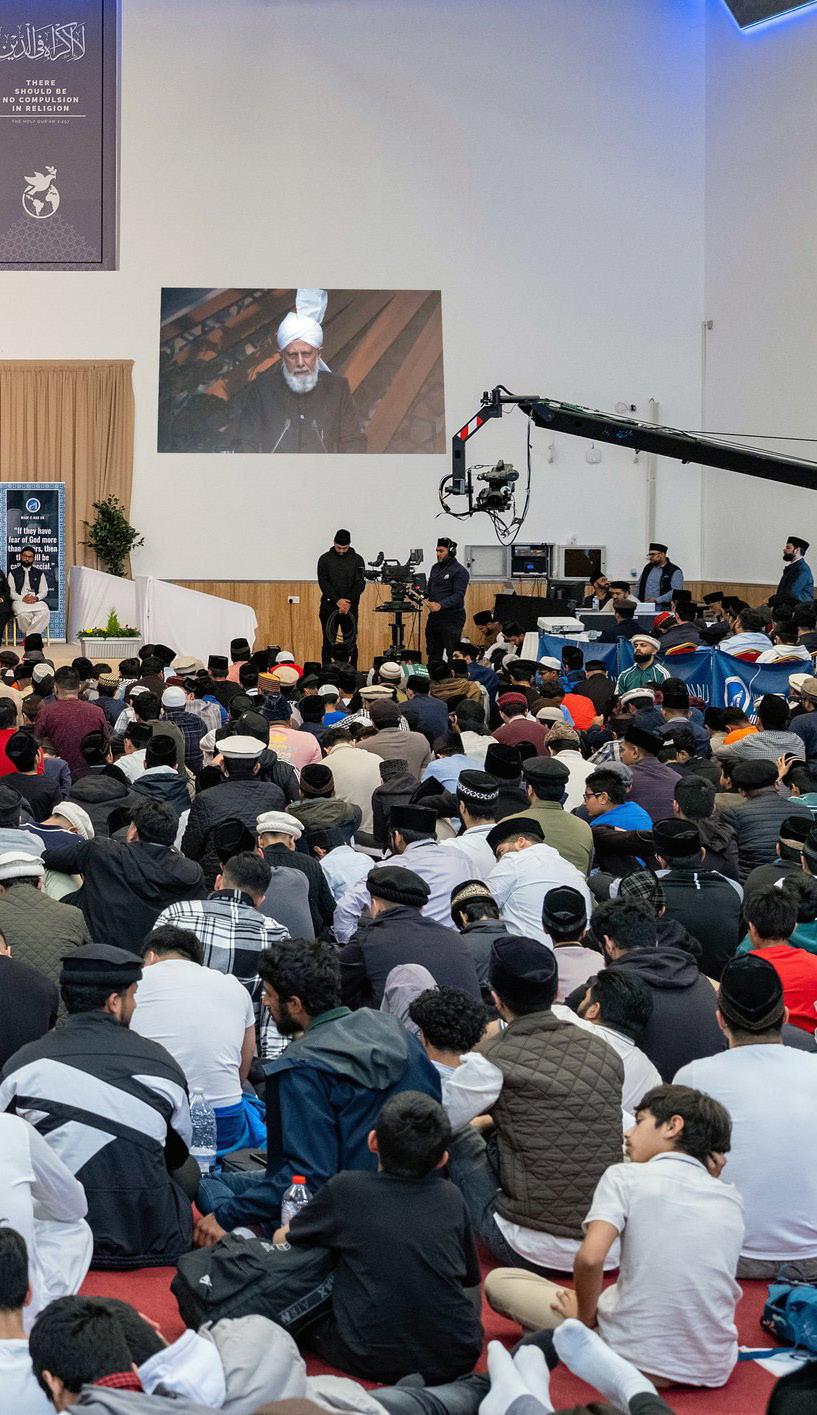
e-Nau should be far higher than others. History attests that those nations who lacked obedience became weak and divided. The Promised Messiahas stated that lack of obedience caused the downfall of all the communities before the Holy Prophetsa. Likewise, after the blessed era of Prophet Muhammadsa and his Khulafa, the level of obedience and unity among Muslim Ummah decreased over the course of time. This led to spiritual darkness and decay within Islam. As a result, they were deprived of the blessings and pleasure of Allah. It was then the Promised Messiahas was sent
by God to revive Islam’s true teachings.
Hazrat Amirul Momineenaa said:
“Never forget that all of you have pledged to be at the forefront of serving his Divine Mission. Hence, I reiterate, that obedience to your faith and Jamaat is a prerequisite.”
Excel in virtue and beneficence
Another injunction of the Promised Messiahas is that a true Muslim should excel in virtue and beneficence. A single act of kindness and goodness invariable leads to another. Huzooraa said:
“If you exhibit grace, integrity and piety, you will gain the nearness of Allah the Almighty and become the recipients of His blessings and rewards.”
“Thus, as a Waqf-e-Nau, always seek to excel in goodness and ensure your act is well intentioned, kind and virtuous.”
Explaining the conduct and acts considered good by Islam, Huzooraa said “You must carefully study the Holy Quran as Allah the Almighty have stipulated what is right and what is wrong.” There are more than 700 commands in the Holy Quran as stated by the Promised Messiahas.
17
18
By Noman Ahmed
Let us begin by firstly defining what a ‘Khalifa’ is. Caliphate or Khilafat is a spiritual institution from God that succeeds prophethood. It provides unity, progress, righteousness and security to the followers of a Prophet. The Caliph or ‘Khalifa’ (successor) is a Prophet’s spiritual heir, his vicegerent and subordinate. He derives his own authority from his Master-Prophet and thus becomes the central authority for his followers.
The Promised Messiahas stated in his book ‘The Will’ that this institution will carry on after him. He states:
“But when I depart, God will send that second manifestation for you which shall always stay with you just as promised by God in Barahin-eAhmadiyya.
“And this promise is not for my person; rather, the promise is with reference to you, as God [addressing me] says: ‘I shall make this Jamaat who are your followers, prevail over others till the Day of Judgment.” (The Will, p. 7)
Nowadays it is very important for people, mostly those who were born and raised in the West, to understand the election of a Khalifa. However, some may wonder ‘How could a person elected by people could, at the same time, be appointed by God?'.
The Khalifa is a virtuous shining light of accountability which propels change and effort forward. Being the leader, he builds momentum so that everyone is ‘swept up’ in the journey with him. Worldly leaders may be elected amongst their people, but it is our leader who has been elected by Allah.
19
The Holy Quran has clarified it for us in Chapter 56 verse 64-65:
“Do you see what you sow? Is it you who grow it or are we the Grower?”
In this verse, Allah explains that it is not you who grows anything, but it is Me. In other words, the action which is performed by us is attributed towards Allah.
Take the example of a farmer who follows a system that Allah has created which enables crops to grow. If such a system is not followed, then that crop will never grow. So, you are compelled to conclude that the real grower is, in fact, Allah. It is He Who has established the system and when man follows that system, in choosing the right soil, in planting the right seeds, in farming at the right time, only then will that crop flourish.
In Chapter 24, verse 56 of the Holy Qur’an, it says:
“Allah has promised to those among you who believe and do good works that He will surely make them Successors in the earth, as He made Successors from among those who were before them; and that He will surely establish for them their religion which He has chosen for them; and that He will surely give them in exchange security and peace after their fear: They will worship Me, and they will not associate anything with Me. Then whoso is ungrateful after that, they will be the rebellious.”
The above verse alludes to the fact that successors will be made in the earth just as successors were made by Allah from among people who were before them which includes the concept of the establishment of Khilafat after the advent of previous Prophets.
This promise of a Khalifa has also been mentioned by our beloved Prophetsa which authenticates the Hadith as it is corroborated by the verse above.
“Prophethood shall remain among you as long as Allah wills. He will bring about its end and follow it with Khilafat on the precepts of prophethood for as long as He wills and then bring about its end. Kingship shall then follow, to remain as long as Allah wills and then come to an end. There shall then be a monarchical despotism which shall remain as long as Allah wills and come to an end upon His decree. There will then emerge Khilafat on the precepts of prophethood.” Prophet Muhammadsa then became silent.” (Musnad Ahmad bin Hanbal, Kitab al-Riqaq, Bab alAndhar wa al-Tahdhir)
ہٗۤنَؤْعَرَزۡتَ مَتُنَ اءِ ۶۴ نَؤْثُرْحۡتَ امَ مَتُیۡءِرْفِ ا ۶۵ نَؤْعَرَزۡلا نِحۡتَ مۡ ا
اؤْــلَّمَعَوَ مَــ�نَّمَ اؤْــتُمَ ا نِــیۡذِلا للّٰهُا دِـ عَوَ اــمَکَ ضِرَلاَا فِی مَــ�نَّفَلَّخۡتَسَّیَل تِــحۡلِصِلا نَنَّ�ــمَیَلوَ ۪ مَــ�لَّبْقَ نِــمَ نِــیۡذِلا فَــلَّخۡتَسَا مَــ�نَّلدِبَیَلوَ مَــ�ل ضٰیتَرَا یذِــلا مَــ�نَّیۡدِ مَــ�ل لاَ بِيِّنَوَدِــبْعْیۡ اــنَّمَ ا مَــ�فِؤْخَ دِــعْبِ نِــمَ کَلذَ دِـ عْبِ رْفَ کَ نِـ مَوَ ابَیَـ شَ بِیۡ نَؤْـ کَرْشۡیۡ ۵۶ نَؤْقُــسَّفَلا مَــہ کَئِــلوَافِ
20

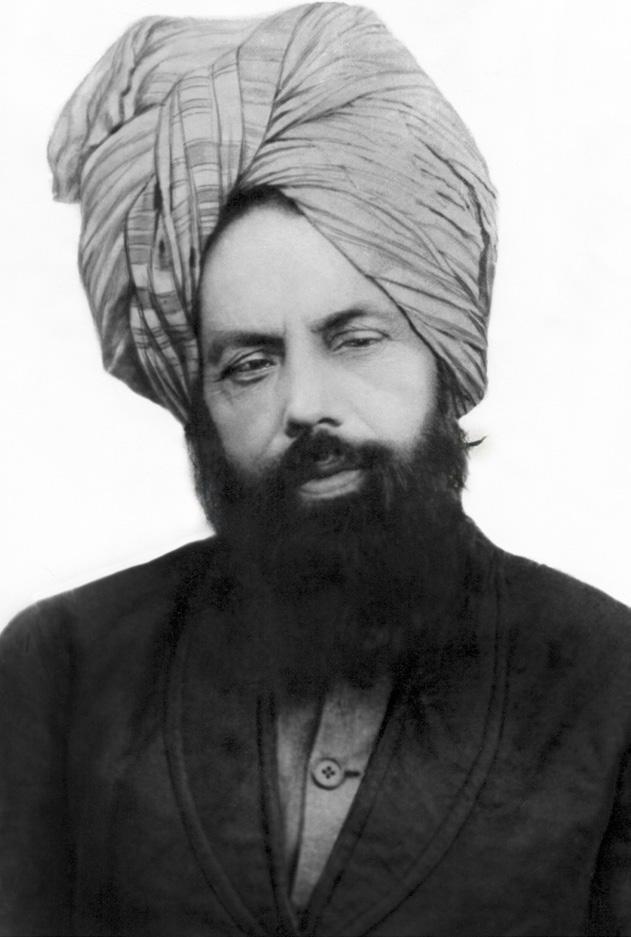
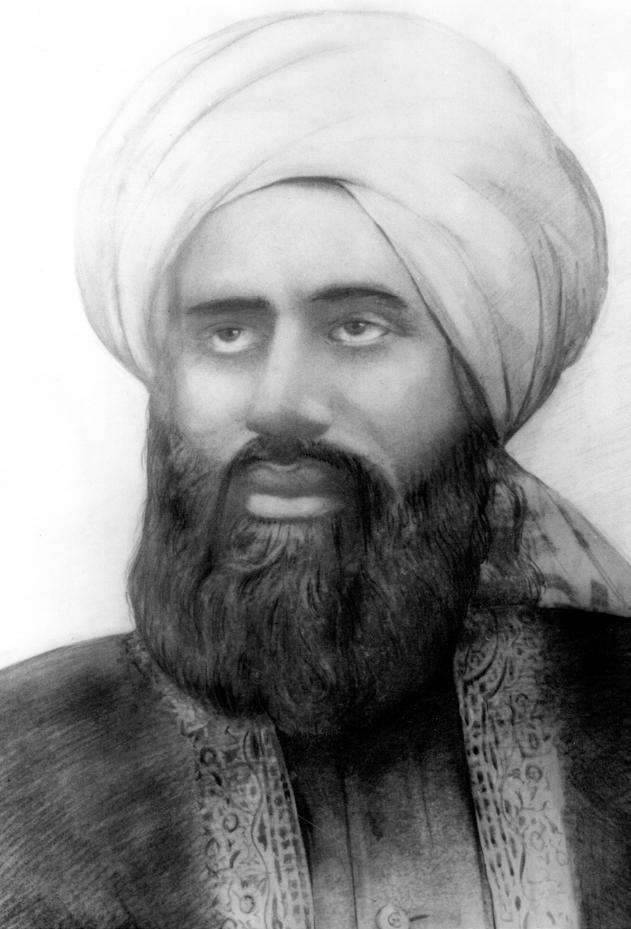
This clear elucidation leaves us with absolutely no doubt that a system of Khilafat was to be established after the demise of the Holy Prophetsa and certain individuals would act as the spiritual embodiment of this system.
The second Khalifa, Hazrat Mirza Bashiruddin Mahmud Ahmadra, writes the following in relation to the selection of a Khilafat by Allah:
‘God has appointed me as the Khalifa and God Almighty never errs in His selection. If all the world accepts
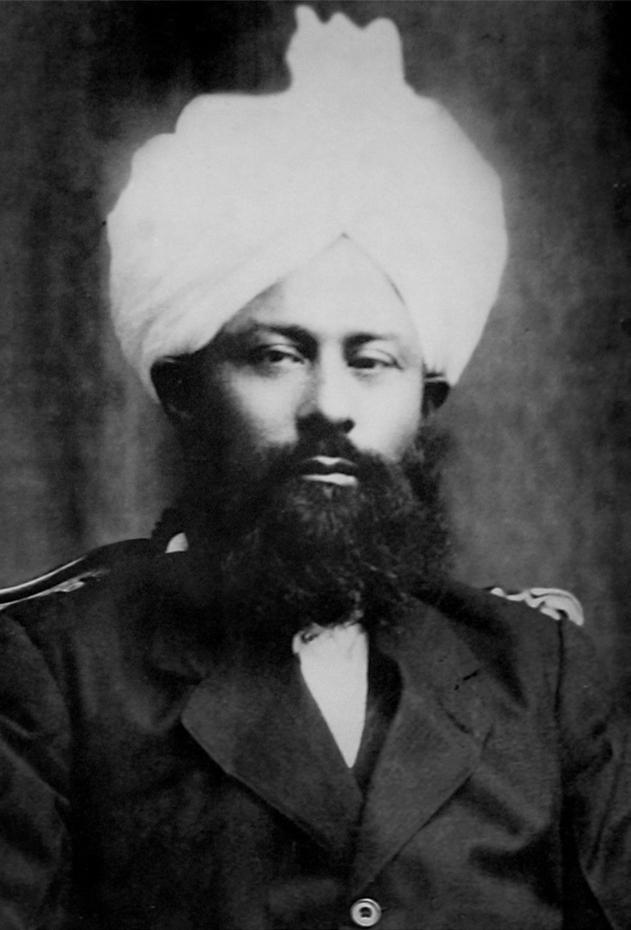
me, this will not make my Khilafat [Caliphate] greater, and if everyone, God forbid, were to leave me, even then, this would not affect Khilafat. Just as a Prophet is still a Prophet even by himself, so too a Khalifa is still a Khalifa even by himself. Blessed is the one who accepts the verdict of God. The weight that God Almighty has placed on me is immensely great, and if it were not for God’s support, I could do nothing. But I firmly believe that the holy being of God will most definitely support me.
22
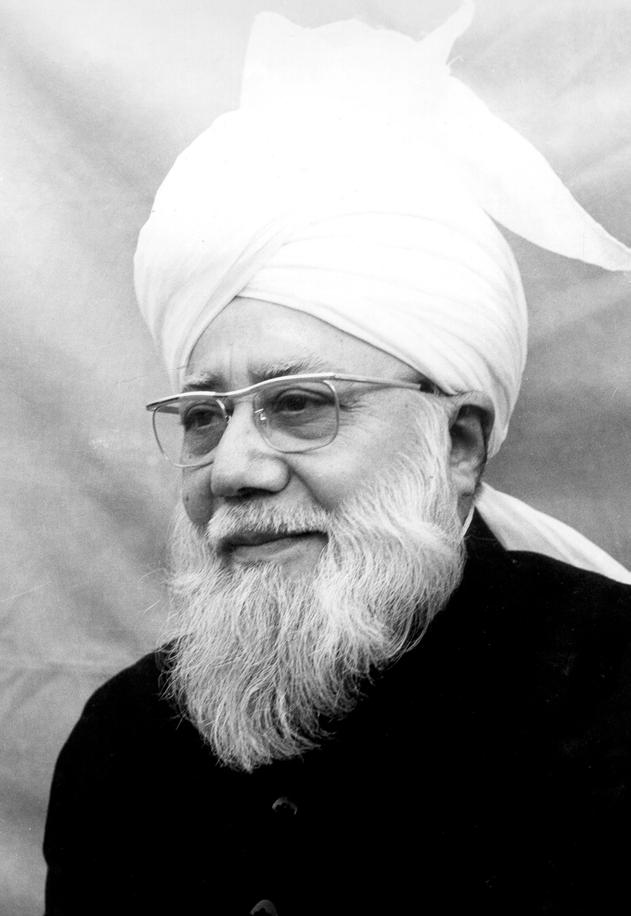
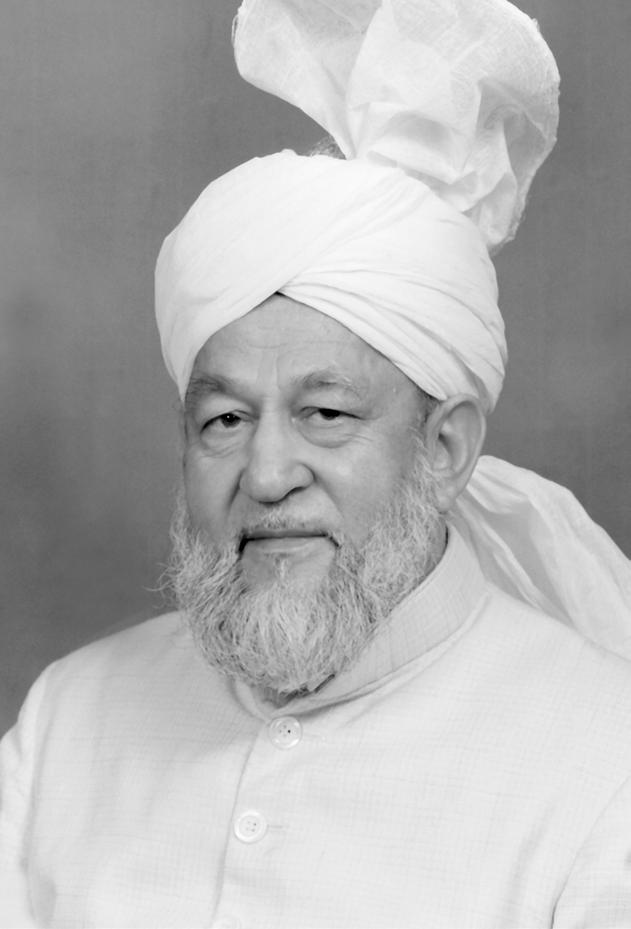
When the Promised Messiah, Hazrat Mirza Ghulam Ahmadas (the holy founder of the Ahmadiyya Muslim Community) passed away, Khilafat was established once again. This is known as the Khilafat of Ahmadiyyat or Khilafat al-Ahmadiyya.
The Khalifa of the Promised Messiahas is known as Khalifa-tul-Masih, or the Khalifa of the Messiah. The first Khalifa of the Promised Messiahas was Hazrat Hakeem Maulvi Nooruddinra, at whose demise Hazrat Mirza Bashiruddin Mahmud Ahmadra became Khalifa. The third Khalifa was Hazrat Mirza Nasir Ahmadrh and the fourth successor was Hazrat Mirza Tahir Ahmadrh. The fifth successor and the current Khalifa of

the Ahmadiyya Muslim Community is Hazrat Mirza Masroor Ahmadaa.
According to Islamic teachings, the office of Khilafat can, under no circumstances, be inherited from one’s father or relatives. It is a holy trust, given only to a pious follower of a Prophet. Whilst people are involved in the process of electing the Khalifa, Muslims firmly believe that it is ultimately Allah who appoints the Khalifa. According to Islam, people who are entrusted with selecting the next Khalifa are guided by Allah during the selection process; the end result is that the most able and righteous person is selected for the position of a Khalifa.
23
More recently, at the time of the demise of the Promised Messiahas his closest and most revered companion was chosen to lead the community as the Khalifa.
At the time of the death of the first Khalifa of Ahmadiyyat (Hazrat Hakeem Noor-ud-Dinra), the second Khalifa, Hazrat Mirza Bashir-ud-Din Mahmud Ahmadra was elected who established certain guidelines for the appointment of the new Khalifa in which it was stated that the election of the Khalifa is to be assigned to an electoral college.
The Ahmadiyya Electoral College was established by Hazrat Khalifatul Masih IIra, the second successor to the Promised Messiah and Mahdias.
During the lifetime of the Khalifa, the College remains dormant and plays no role. Upon the demise of the Khalifa it becomes an active and independent body which elects the next Khalifa.
During the election process names are proposed and seconded by members. They then vote for the proposed names by a show of hands.
During those elections spiritual events have been seen by some of those chosen people who saw a glimpse of Khilafat before being elected, such as a woman who saw a bright light dazzling from the sky, piercing through the roof of the sacred Fazl Mosque and directly
shining upon the person whose name was Masroor.
When the fifth and current Khalifa, His Holiness, Hazrat Mirza Masroor Ahmadaa was raised to the station of Khilafat, people from all over the world came forward and related their dreams about him, in which Allah informed Ahmadis that Hazrat Mirza Masroor Ahmad, our beloved Imam, would be the next Khalifa. In this way, Allah strengthens the faith of the believers and makes it clear to them that if they seek spiritual salvation, they must obey this chosen one of Allah; that they must attach themselves to him, and never let go. These ordinary people are informed by Allah through the most manifest signs that even in the most perilous storms, if they remain obedient to Khilafat, they will be protected from every danger. Events like these are not fictitious, but rather a testament and a reality that are experienced by pious and trustworthy people.
At this moment in time, Allah’s Creation stands at the brink of calamity, seeming to have lost its rationality; a man is now needed who can direct them to the right path. That man stands alone above all – the Khalifatul Masih, that Prince of Peace who has been urging and preaching peace and justice to everyone. If this is not the Work of Allah then, I do not know what is. To me, all of this serves as concrete proof of the Khalifa being appointed by Allah and Allah alone.
24
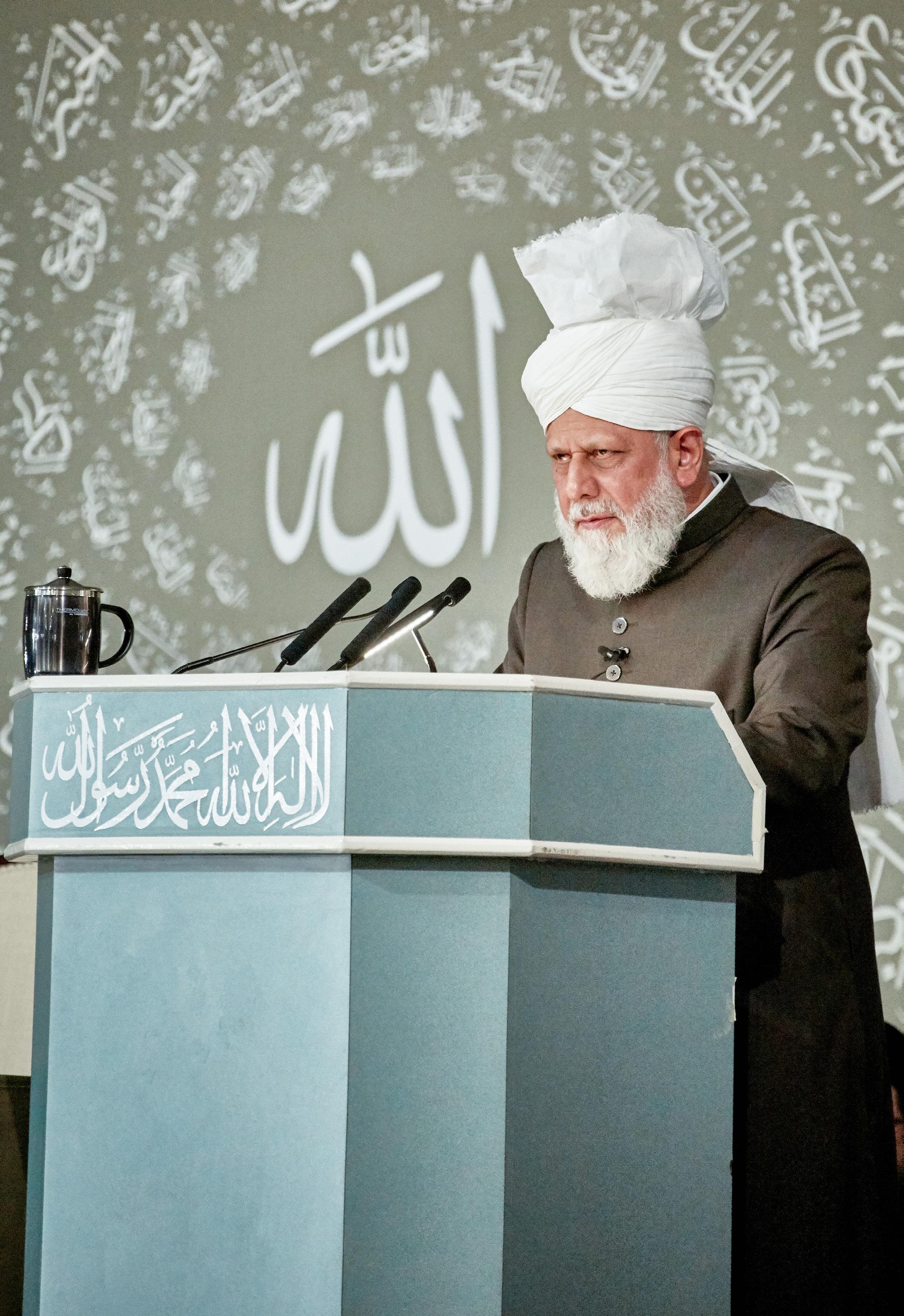
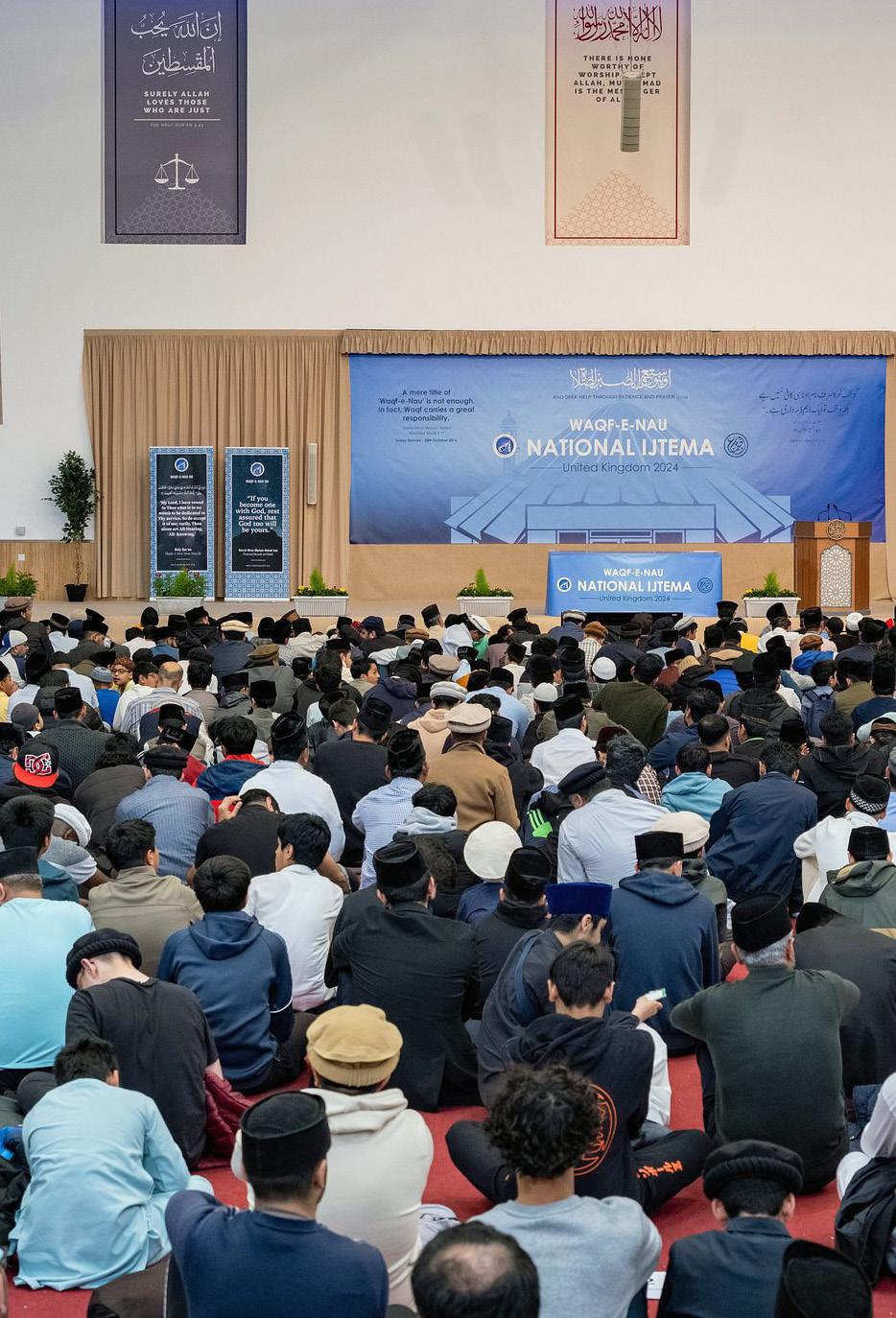
We are all incredibly fortunate to have followed and accepted him. We are all required to say کــیبل (I obey) to all the orders given to us by our Khalifa, کــیبل to all the duties given to us, کــیبل to all the hardships required of us, کــیبل to any sacrifices asked of us, as Islam means to place our necks under the blade of sacrifice and give up anything for the oath that we have taken.
Today, there is no other community in the world that has been able to establish the system of Khilafat through their own human designs. There are various forms of spiritual and worldly leaderships throughout the world today, but none have been able to accomplish the feats of Khilafat. It is this practical testimony of Allah through His support for the Khalifa, against all odds, which clearly demonstrates that Allah appoints the Khalifa.
26
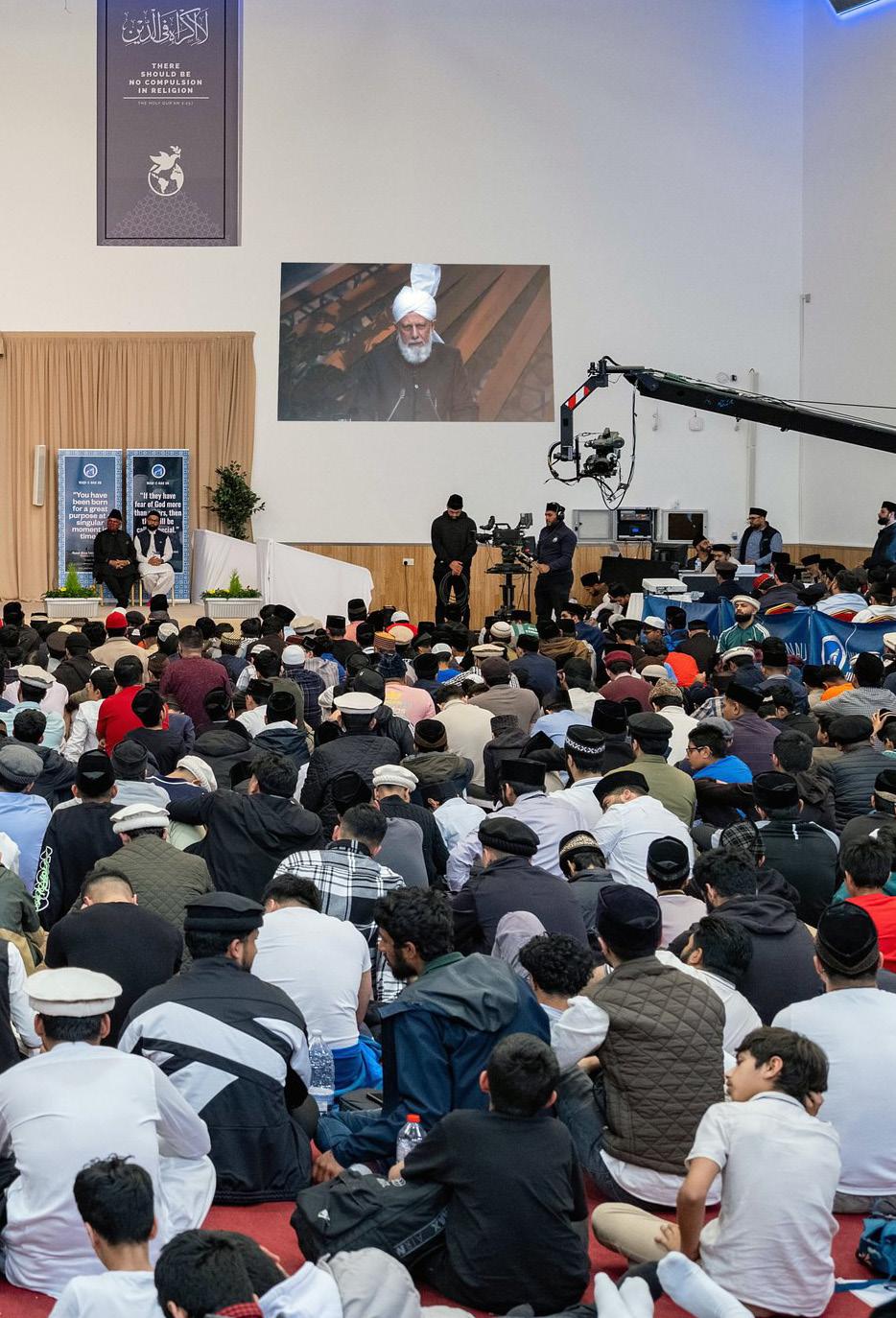
27
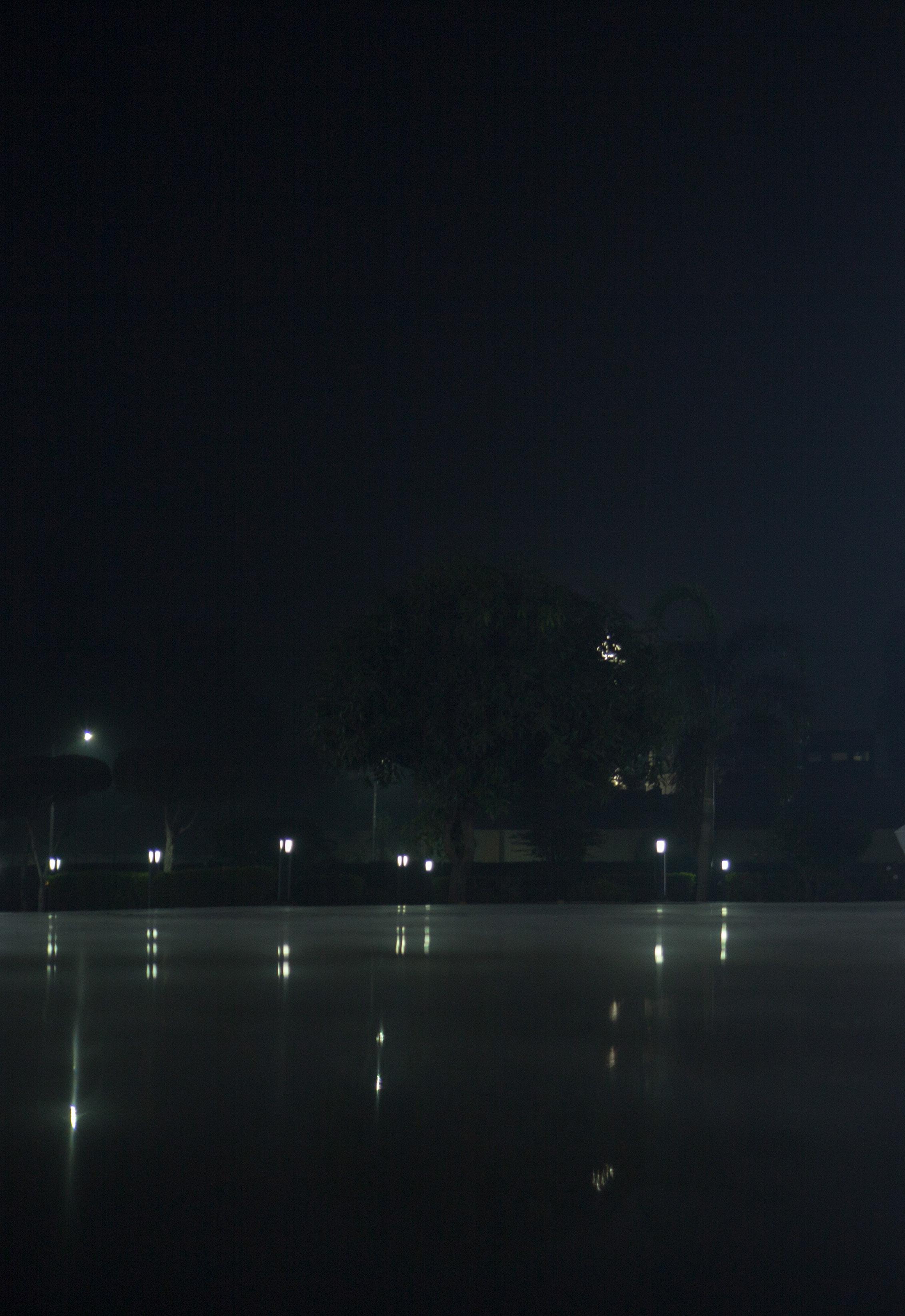
The Great Works of Hazrat Khalifatul Masih
(may Allah be his Helper)
By Shamail Ahmed
28
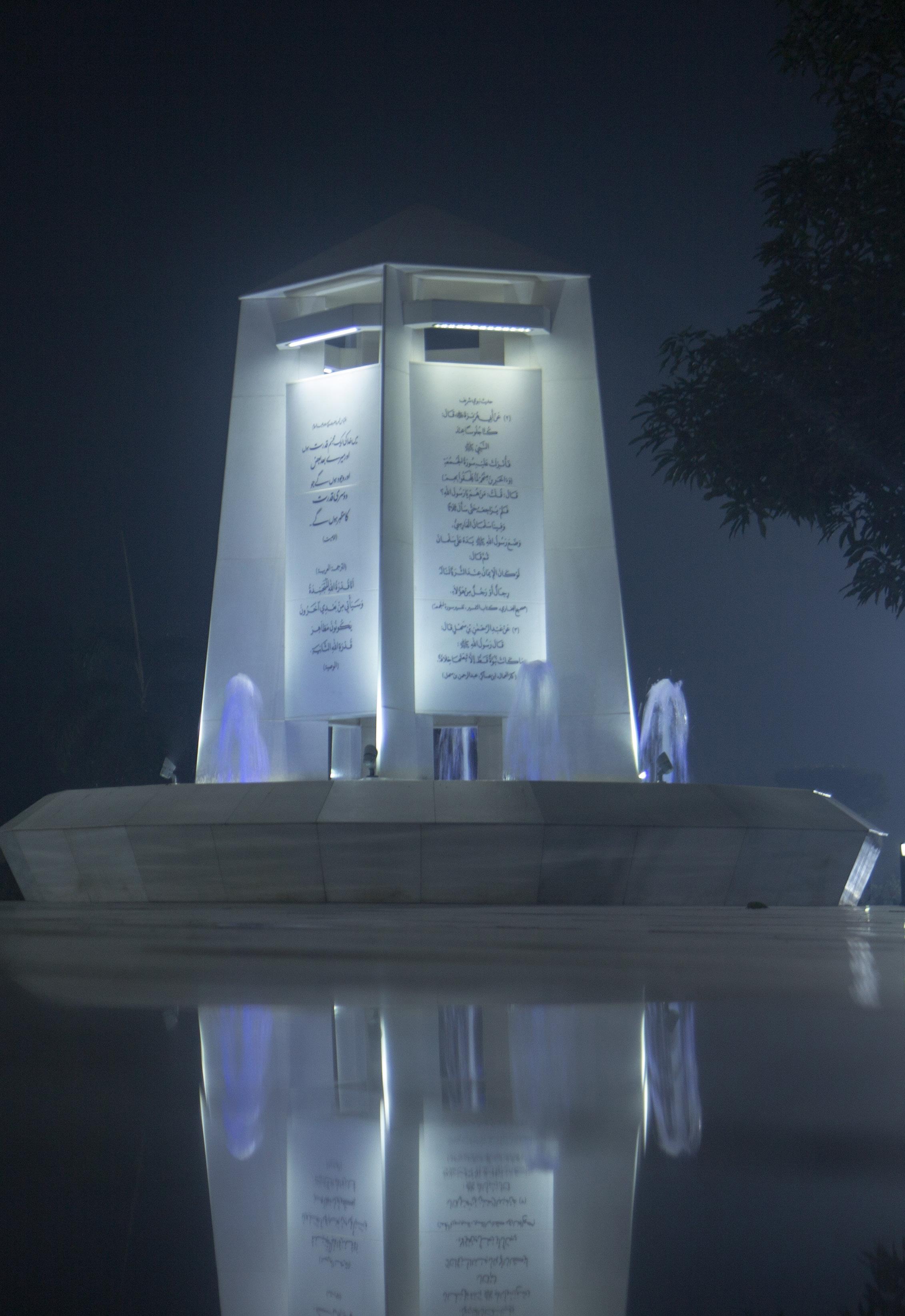
29
When we cast our eyes towards the tasks and lifestyle of Hazrat Khalifatul Masih Vaa we have to exclaim that this is only possible through Divine help. It is hard to comprehend how Huzooraa spends his day-to-day life and this really puts things into perspective for all Ahmadis around the globe.
Discussing this topic of the tasks of Hazrat Khalifatul Masih Vaa and highlighting his life is one which would dry out our pens; there is an entire world to tap into when this is in discussion. We must remember that this position of Khilafat, is not one which one works towards or aims for. it is a position in which one is Divinely appointed for.
Thus, it also comes with Divine help and aid. When we attempt to breakdown the routine and duties of Khilafat, we come to realise how such a schedule is not possible to follow for ordinary humans, and it is only possible through Divine help.
I have been living in Islamabad for almost a year, where Khilafat is currently based so I have been blessed to be able to have a glimpse of Huzoor’saa routine. Through the virtual meetings which we see on MTA, where Ahmadis ask Huzooraa about his routine, we are able to see just how Huzoor’saa day is spent.

One task of Hazrat Khalifatul Masih Vaa which always leaves me amazed is in regards to his correspondence. Everyday Huzooraa himself reads and responds to thousands of letters. These letters consist of seeking prayers, requesting guidance, asking questions, reports, etc. Moreover it is not the case for him of just flicking through them. Huzooraa reads each and every name, reads each and every matter of every single letter and issues a response. Regardless of the extremely large volume of letters which hereceives daily, Huzooraa still encourages every single Ahmadi to write to him about any matter which they want. Huzooraa does not have concerns for an increase in his workload, rather, his interest lies in building a personal relationship with each and every Ahmadi. Huzooraa ensures that all letters are translated no matter which language they may be in, so that not a single letter is left unread.
Aside from the letters which Huzooraa receives from across the globe there are those matters regarding the progress and work of the Jama’at which he deals with. This occurs through letters and reports and private meetings with office bearers of various departments within the Jama’at. Huzooraa is aware of all the work and progress of the Jama’at, whether it is the programmes on MTA, mosque projects, local, regional and national events, charity work, social media campaigns, the
list goes on and on. Also, it is not just that Huzooraa is aware of these things, rather Huzooraa provides such guidance and direction which is full of wisdom and intellect. Not just in spiritual matters, but matters regarding architecture, management, graphic design, scheduling, etc, there is an array of knowledge which Hazrat Khalifatul Masihaa possesses.
Another task of Hazrat Khalifatul Masih Vaa is Mulaqaats, i.e., a private audience with Huzooraa. Ahmadis would come from all over the world to meet Huzooraa and spend precious minutes in his presence. Yet another task of Khilafat is to build strong relationships with each and every Ahmadi. Along with that, the Covid pandemic has proven to be a blessing in disguise. As because of it, virtual mulaqaats take place regularly, which has become part of Huzoor’saa schedule. Through this, those people who live far and wide, Umara (National Presidents), National Amla members of all countries, Auxiliary associations, etc., all have the blessed opportunity of speaking and interacting with the Khalifa of the age.
Furthermore, in various virtual mulaqaats and classes with Huzooraa which we can access through MTA and social media, there has been occasions where people ask Huzooraa about his daily routine. Due to our
31
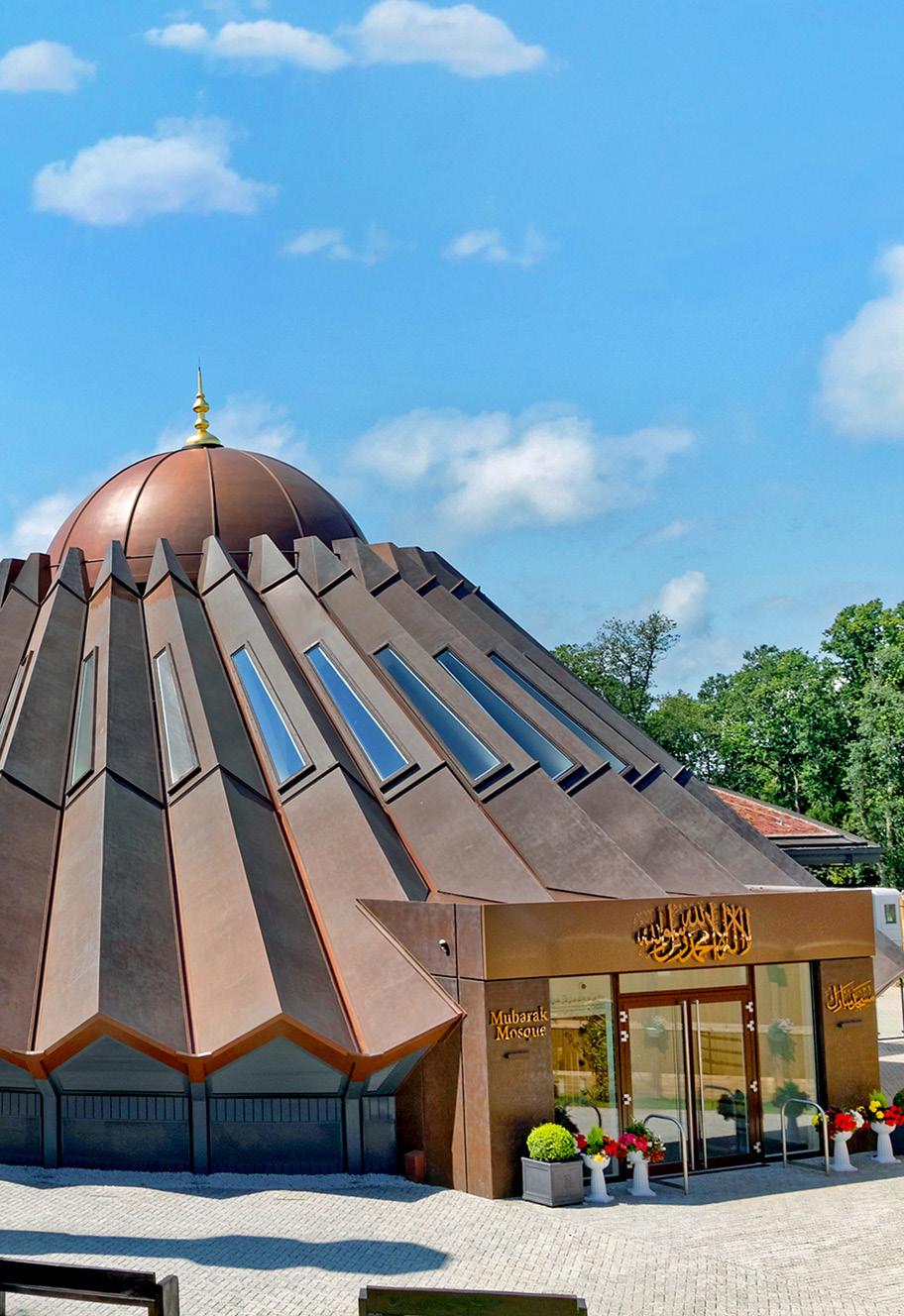
love and attachment to Khilafat, we would of course want to know how he spends his day, but I believe that there is another reason as to why people inquire about Huzoor’saa schedule. The fact that when we find out Huzoor’saa schedule, there is an element of bafflement as to how one can do so much in a mere twenty-four hours.
Hazrat Khalifatul Masih Vaa starts his day in the depth of the night to pray Tahajjud, regularly reciting the Qur’an, studying and reading the books of the Promised Messiahas, preparing and researching for the Friday Sermons, again, the list goes on and on. The day consists of minimal sleep and maximum output.
On top of that, Huzooraa fervently prays for each and every Ahmadi, prays for the peace and security of the world, the progress and success of the Jama’at, the removal of injustice in the world and the unity of the Ummah. Needless to say even trying to understand even the vastness of Huzoor’saa prayers is a difficult task for us.
The work carried out by the Khalifa of the time is unimaginable. Every step the Khalifa takes is for seeking the pleasure of God and carrying out God’s work. Every breath the Khalifa takes, every word the Khalifa speaks is for Allah and for Allah’s chosen work. Thus, with the heavy responsibility of being the chosen Khalifa, comes the aid and help of Allah. We cannot even imagine this burden or level of responsibility.
As mentioned at the beginning, listing and explaining the tasks which Khalifatul Masih carries out is not a simple task to say the least. There is the part which we can see with our own eyes, the speeches, the meetings, the events etc. And there is the part which we do not see: the prostrations, the research, the hours upon hours in the office.
Another aspect which proves that this work is done with Divine help, is that all this work is repeated every single day without fail. As long as the mission ordained by Allah does not stop, the work of the Khalifa does not stop. With each passing day, the tasks and duties of the Khalifa of the time increases.
Upon all these tasks of the Khalifa, there is a task that is obligatory for us: that is prayer. To pray for the Khalifa. To pray for his health, his success and his safety. Without Khilafat we are lost, but with Khilafat, we are a community which no one can put even a slight dent into. With Khilafat we have God’s help and support.
https://www.alislam.org/articles/ khalifa-appointed-god/ https://www.alislam.org/question/ who-is-caliph-how-chosen/ https://www.reviewofreligions. org/ 36729 /god-appoints-the-caliph/ https://www.alhakam.org/theglorious-future-of-khilafat/
33
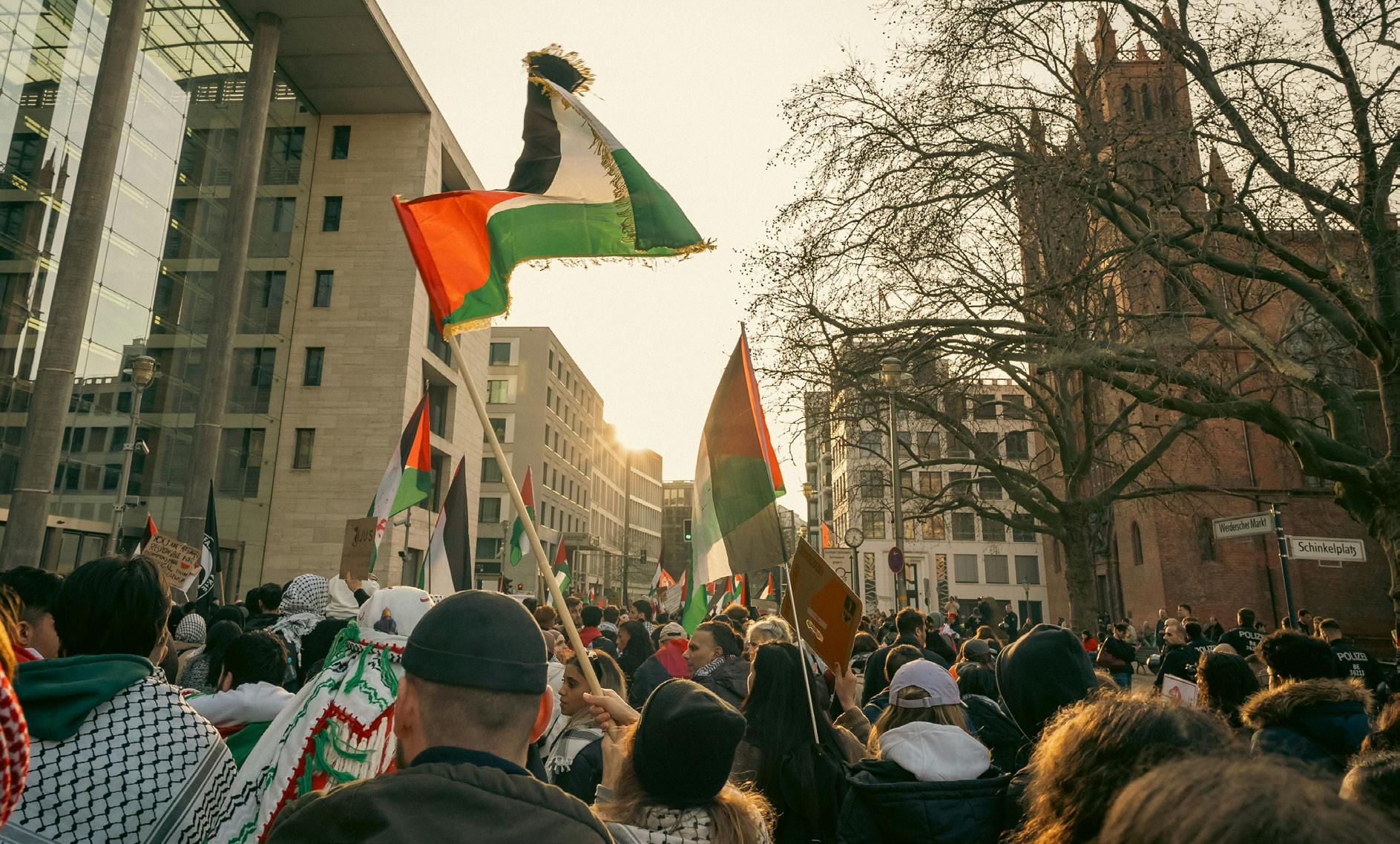
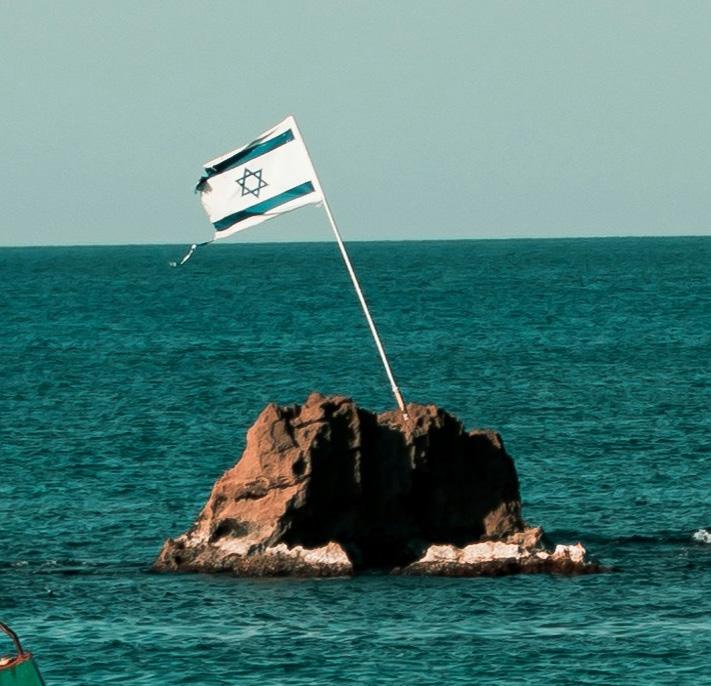
The PalestineIsrael Conflict from the Lens of Islamic Principles of War
By Ata-ul-Karim Gohar
34
Where there is powerful media prejudice and biased narratives being spread on all fronts of social media and across forums of public discourse and opinion. However the facts do not change. The statistics do not stay silent, but are pleading with ever so more desperation that enough is enough. Behind each and every statistic is a man, woman, or child, who has departed the world forever and left behind a mourning mother, father, sister, brother, or even an orphaned child. This is something which we are all too familiar with in the recent times of COVID, where the small statistics at the start were meaningful, but as the numbers climbed into hundreds and thousands, the world just turned a blind eye feeling indifferent to whether it was 2,000 deaths or 5,000. The same cold-hearted rhetoric is being repeated
again where the number of Palestinian casualties is just considered a mere number of 30,000+ yet all the focus is on 1200[1]. The 1,200 that is considered important worldwide and for which the tears of the politicians seem to flow as well. This is a modern day statistical dichotomy where less is more when they are considered the privileged class. Yet for the sake of God and his creation, it must never be like this. A human life is a human life, no matter what race, ethnicity, creed or religion they belong to. Islam says that whoever kills one person … it is akin to calling all of mankind[2] - the wording has been so meticulously chosen by God to further prove this point that no distinction whatsoever is made on the basis of religion or caste, and to make human beings understand that every human life is weighted
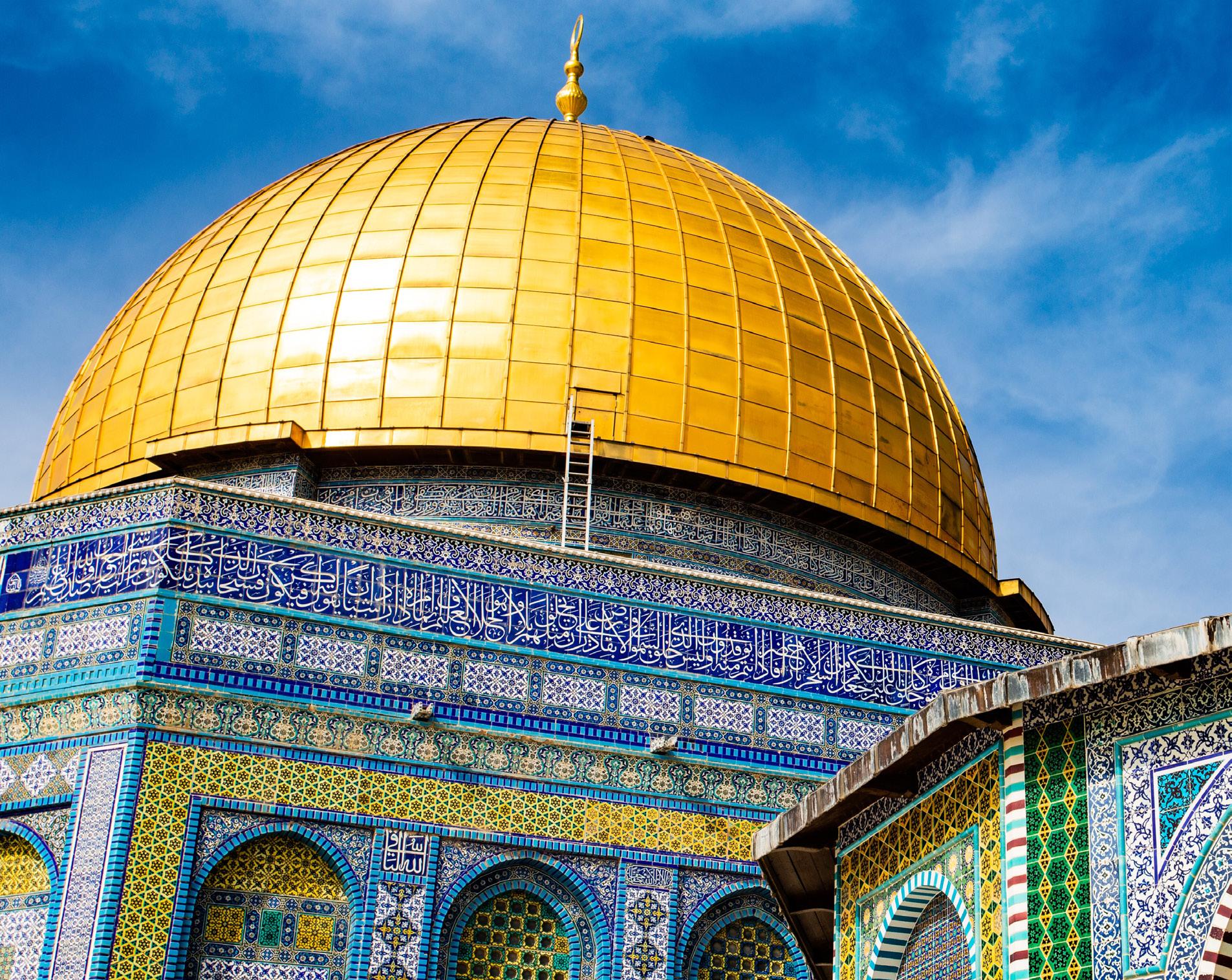

equally.
But let's take a step back from this naming game of whether it should be called a genocide, a conflict, or merely ‘a complex situation’. Although there is presently a case presented by South Africa in the Internation Court of Justice lamenting accusations of Genocide with substantial proof, let us just analyse the whole situation from a neutral standpoint.
The naming debate of whether it is a genocide or “no, it’s just mere self-defense,” and arguments of what is considered an appropriate response, actually take attention away from the reality of what is happening on the ground. The murder of civilians, women and children, is still continuing to plague the streets of Gaza as long as these pointless definitional debates continue to occupy us from just looking at this whole situa-
tion for what it›s worth.
Even if at face value this was to be merely called a 'war', Israel is committing heinous war crimes and going against multiple articles of the Geneva conventions[3], one of the reasons for which the United Nations was established after the atrocities of World War Two. The horrifying videos streaming out of Gaza show nothing but merciless bloodiness, even towards the already dead.
The concept of breaking the sanctity of the dead and mutilating their bodies was prevalent in Arabia at the time of the advent of Islam, yet when Islam manifested itself, it abolished this crude practice and taught patience. Despite the enemy performing ‘Muthlah’ (mutilation of body parts) to their dead, the Muslims would not stoop so low as to their level but rather give respect to the enemy’s dead.
36
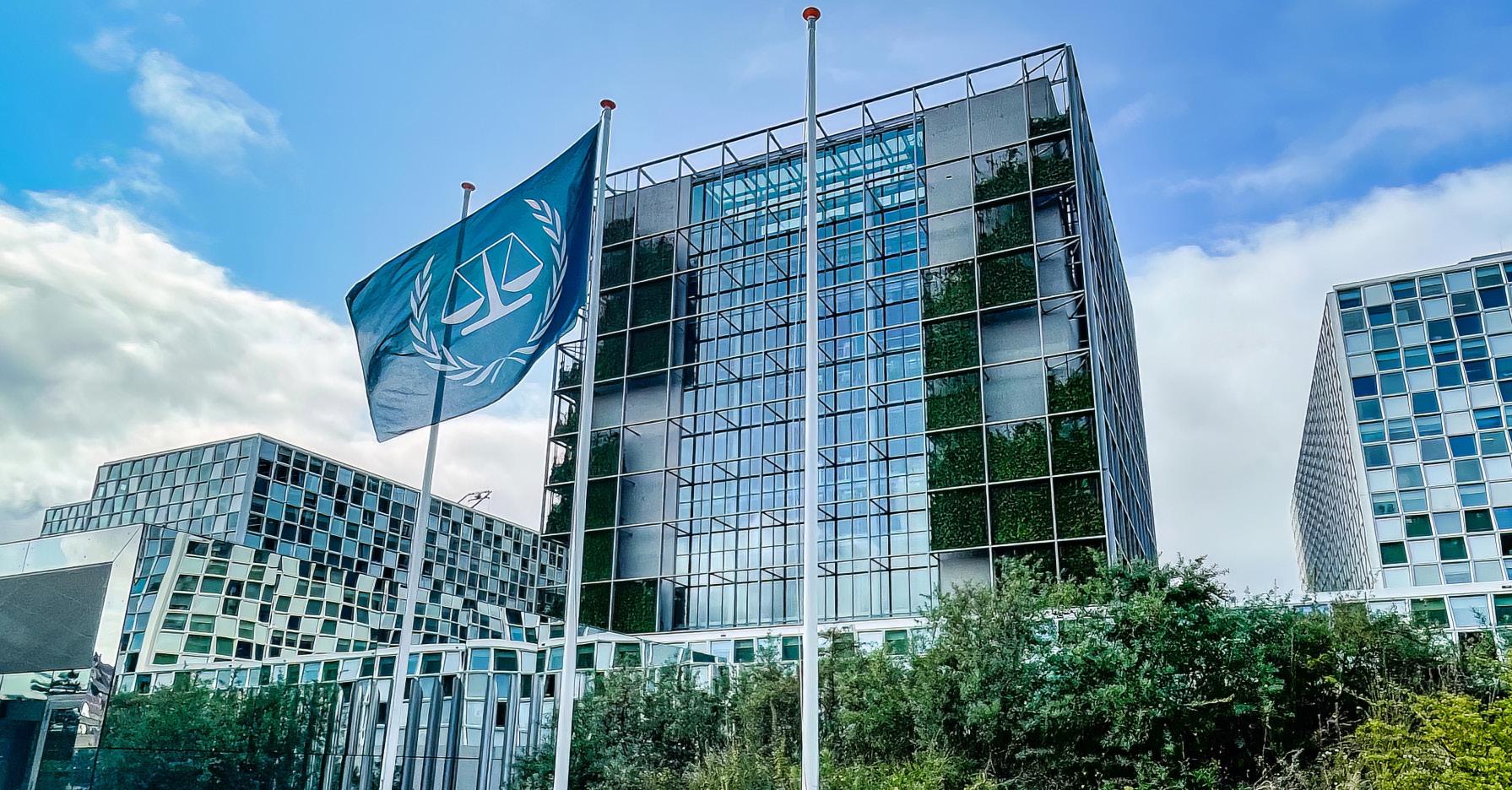
It is found in Hadith that when the Holy Prophetsa would dispatch an army, he would admonish them saying:
''O ye Muslims! go forth in the name of Allāh and perform Jihād with the intention of protecting religion. But beware! do not embezzle wealth from spoils and do not deceive people. Do not mutilate the enemy dead, do not kill women and children[4], nor those who are religious recluses[5]; and do not kill the elderly. Create peace in the land, and treat the people with benevolence, for surely, Allāh loves the benevolent.''[6]
Islamic Principles are so comprehensive that this does not just refer to the physical direct killing of women and children, but guards against all forms of oppression that can lead to deathas evident from the high-standard of treatment of prisoners as well. Hence,
Israel using starvation of civilians as a method of warfare in Gaza is not just against Islamic principles but also a declared war crime against International Humanitarian Law. The Rome Statute of the International Criminal Court provides that intentionally starving civilians by “depriving them of objects indispensable to their survival, including willfully impeding relief supplies” is a war crime[3]
In fact, The Human Rights Watch further asserts that “Israel’s continuing blockade of Gaza, as well as its more than 16-year closure, amounts to collective punishment of the civilian population, a war crime. As the occupying power in Gaza under the Fourth Geneva Convention, Israel has the duty to ensure that the civilian population gets food and medical supplies.”[3]
37
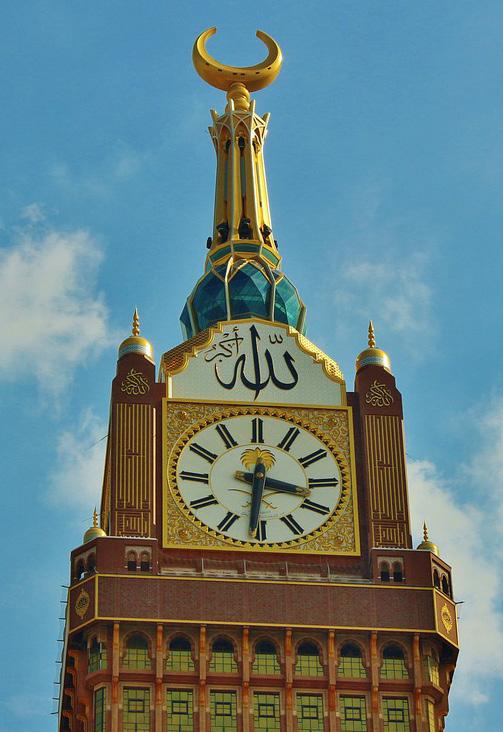
However, this Hadith which illuminates such fundamental Islamic Principles is not some stand alone saying that can be claimed to be fabricated. In fact it has it roots deeply in the first verse of the Holy Quran that granted the Muslims permission to fight in self-defence: God Almighty stated:
The commentary of this verse is deep and manifold which cannot be included due to its length in this article and it has separate books dedicated to the discipline, but it would not be out of place to stress that the Muslims even in a time of war have been commanded to safeguard Jewish synagogues. A favour that unfortunately has not been returned by the Jewish brothers in Gaza with countless Mosques going up in flames. This verse had described the Idolaters as the ones destroying Houses of God, yet how shameful it is that the same ignorant and chillingly violent treatment is being conducted at the hands of one Abrahamic faith against the other.
“Permission to fight is given to those against whom war is made, because they have been wronged - and Allah indeed has power to help them. Those who have been driven out of their homes unjustly, only because they said, ‘Our Lord is Allāh’ - And if Allāh the Exalted did not repel some men by means of others (by granting permission for defensive war), there would surely have been pulled down cloisters belonging to monks and Christian churches and Jewish synagogues and mosques, wherein the name of God is oft-commemorated. And Allāh the Exalted will surely help one who helps Him. Undoubtedly, Allāh the Exalted is Powerful, Mighty.”[7]
To debate over whether the clause at the start of the verse that if war is waged against Muslims applies to the Palestinian population is futile because even with the benefit of historical records, it is a debate that has raged on for more than 75 years still without resolution of who has the right to the Holy Land and who drove out who, and whether that was initiated with aggression or peacefully. The answer to these questions from the Islamic perspective can be given, but the purpose of this article is just to analyse the conflict from the perspective of Islamic rules of war to once and for all put an end to allegations that Muslims are some sort of generational mercenaries by showing the principles that were followed at the time of the Holy Prophet sa .
نَا وَ اؤْــمَلَّظُ مَــ�نَ ابِ نَؤْــلَّتَقُیۡ نِــیۡذِلَّل نَذَ ا اؤْـ جُرْخَ ا نِـ یۡذِلا ۴۰ رْیۡدِ قُل مَــہرْصِنَ لَّىعَ للّٰهُا اؤْــلؤْقُیۡ نَ ا لاَا قٍّــحَ یۡرِغَــبِ مَــہرَایۡدِ نِــمَ مَــ�ضَعْبِ سَاــنَّلا للّٰهُا عُفِدِ لاَؤْــلوَ للّٰهُا اــنَّبِرَ تٌؤْــلَّصَوَ عُیَــبِوَ عُمَاؤْــصَ تِــمَدِ�ل ضٍــعْبْبِ ارْتُثِــکَ للّٰهُا مَــسَا اــ�یَفِ رْکَذِــیۡ دِجِــسٰمَوَ للّٰهُا نَا ہٗرْصِـ نَّیۡ نِـ مَ للّٰهُا نَرْصِـ تُیَلوَ ۪ ۪ ۴۱ زۡـ یۡزۡعَ یٌّؤْـ قُل
39
No faith or holy personage such as the Holy Prophet Muhammadsa should be made the victim of baseless accusations based on the actions of a select few, otherwise, God forbid, by the same principle similar allegations of brutality could be levelled against Prophet Mosesas or any other Prophet, which would inherently be a fabrication of lies on a pure Prophet. The same holds true for the Holy Prophetsa whose exemplar character and merciful personality is displayed at some of the toughest and most delicate times that befell the Muslim nation.
Nothing would be more appropriate to mention in lieu of the above quoted verse and explanation than the very first battle of Islam; the Battle of Badr. Despite being a measly ill-equipped army of 313 in front of a thousand armour-laden soldiers who were ready
to pounce at the next instant, and despite it being such a fragile time that the Holy Prophetsa was pleading to his Lord that “O My Lord! These people have come filled with pride and arrogance to expunge Your religion. Do help Your religion as You have promised”. When a few men from the enemy army proceeded towards a water spring belonging to the Muslims, the Holy Prophetsa forbade his companions from stopping them and ordered that they should be permitted to drink from it[8]. At this time when engagement in war was about to begin, this could have easily been seen as a way of gaining a tactical advantage that could dictate the procession of war, but to deal so justly and benevolently with the enemy was unheard of in the moral code of Arabia at the time, and seems as if unfortunately is unheard of now in the present day. Despite the UN Charter of Human
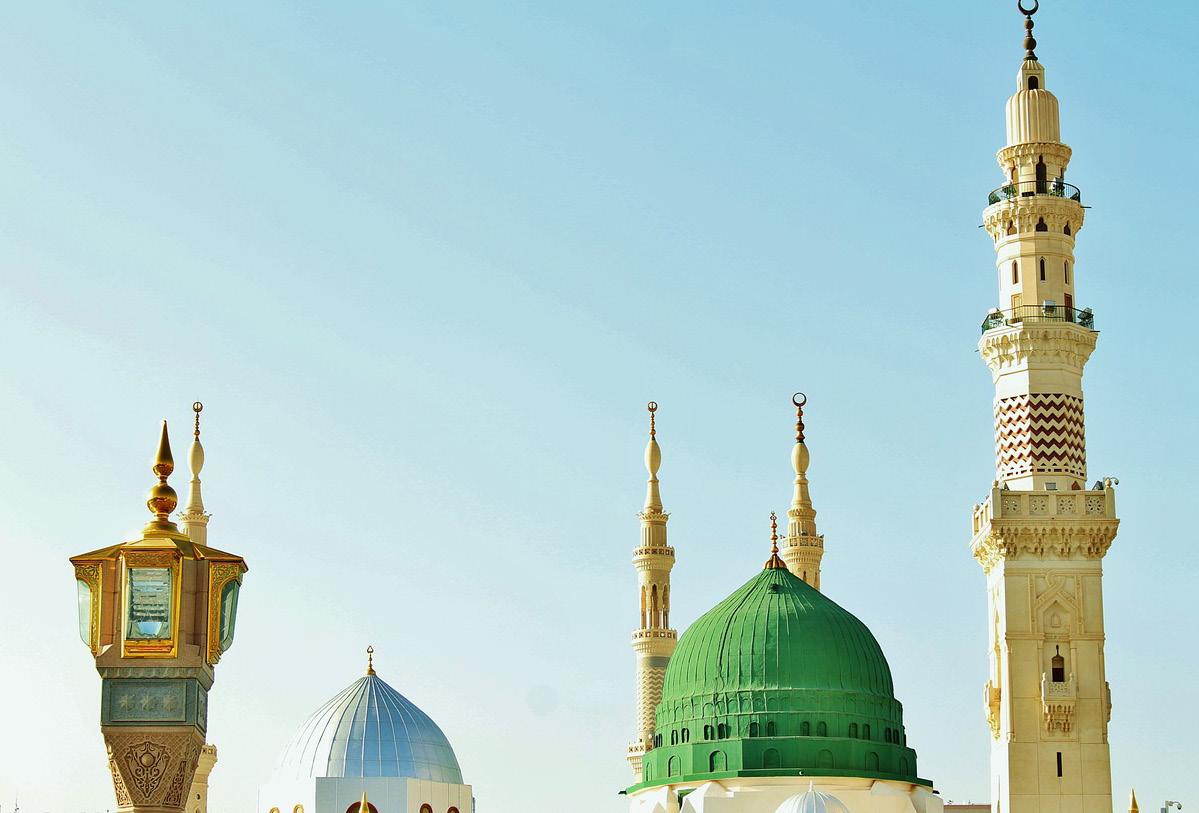
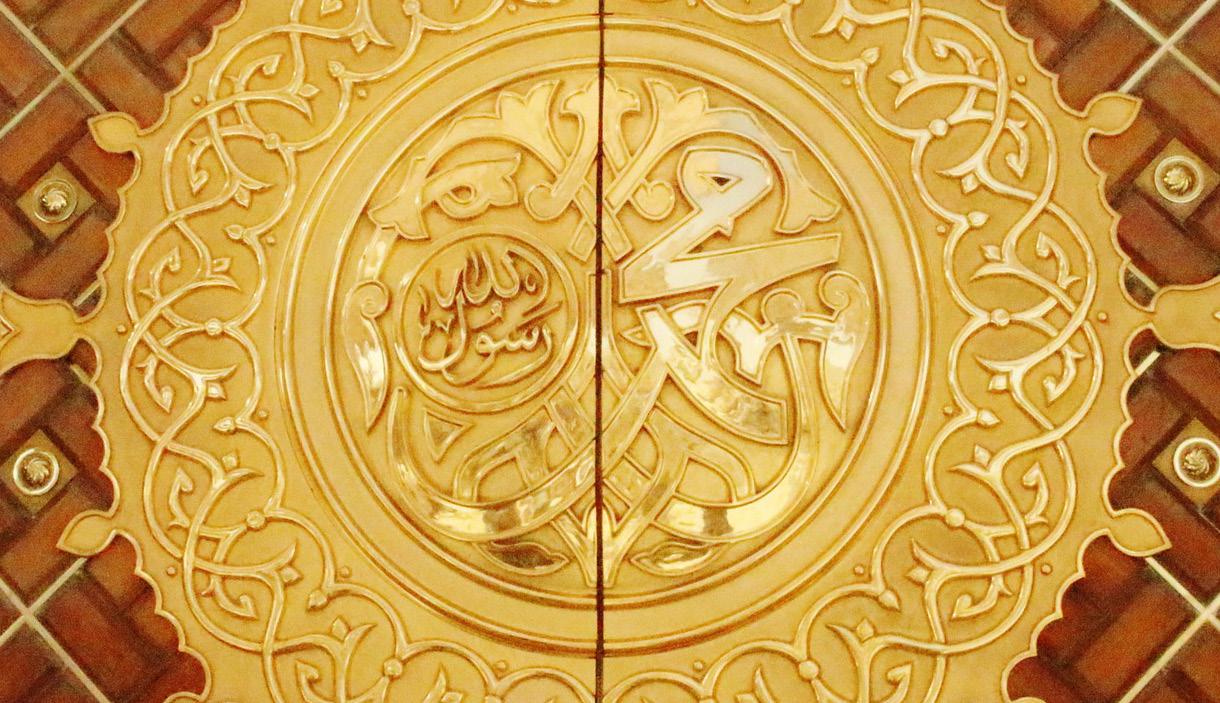
Rights declaring the right to water as basic human necessity, Israel has stopped not only water but electricity and other important aid into Gaza for more than 120 days. Therefore, this action is completely against the practice of the Holy Prophet Muhammadsa and is a distinction of Islam that whilst taking into consideration the rules of engagement in war, it has still ordered the good treatment of enemies as well.
In fact, this is reiterated in Islamic teachings time and again to such an extent that once the Holy Prophetsa said whilst advising a commander:
“Do not cause harm to those who consider themselves to be devoted to the cause of Allāh. Similarly, do not harm that which they consider to be sacred, do not cut down a fruitful tree and do not ruin an inhabited place.”[9]
Such is the teachings of Islam that
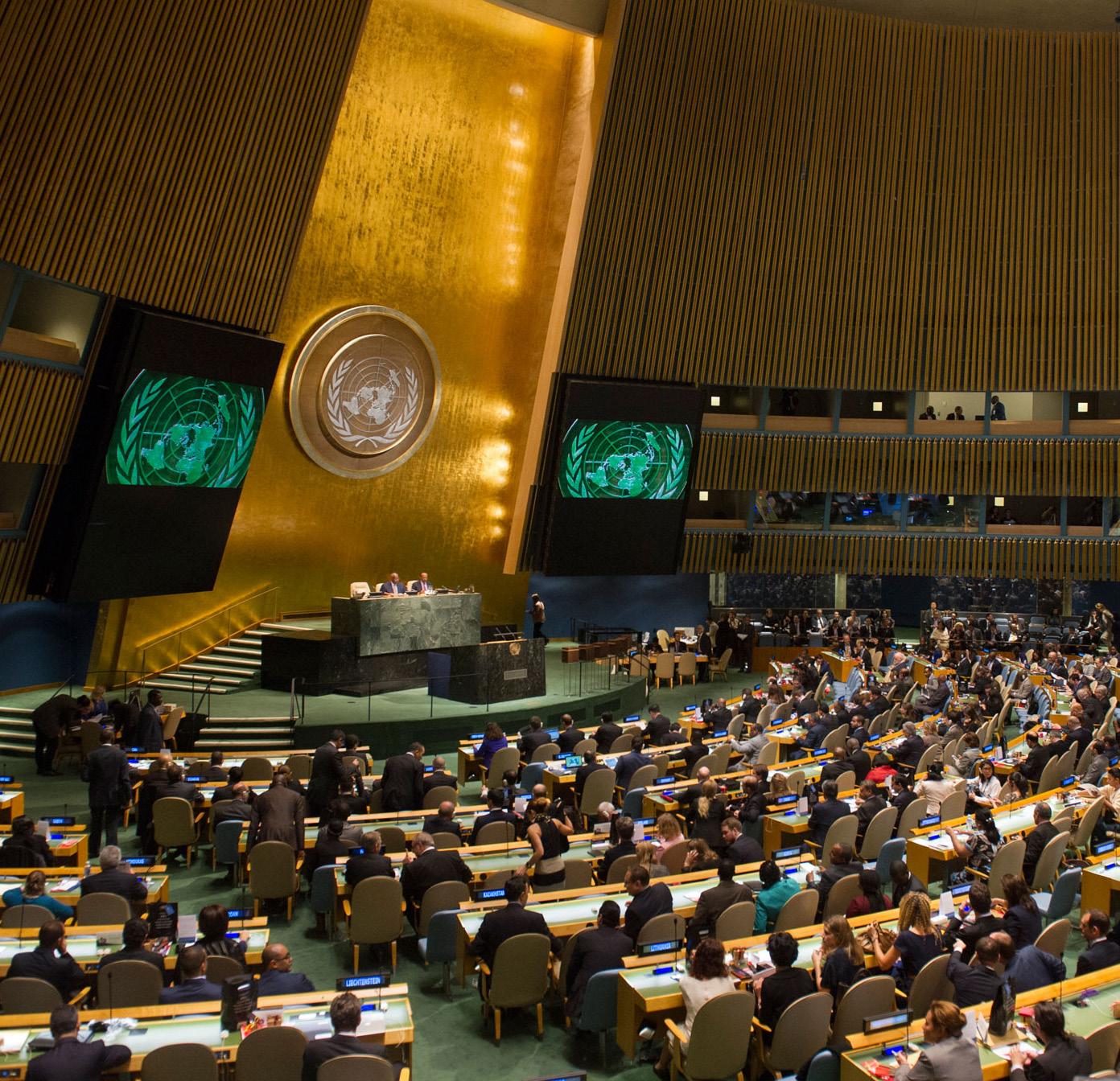
not even a fruitful tree nor even an uninhabited place should be ruined.
Alas, what is the destiny of the inhabited Gaza?
41
The Quran even when it commands the believers to fight in self-defence lays out a clear principle within the same verse:
“And fight in the cause of Allah against those who fight against you, but do not transgress. Surely, Allah loves not the transgressors.”[10]
There was an media frenzy that was ignited about what is the appropriate response, and the public was swayed towards accepting that Israel has a right to get to the 1200 killed count , despite carpet bombing and killing civilians in the majority of these deaths. But what happened after that? The number just kept rising and rising with no signs of slowing down. This is clear signs of transgression, if the Jews wanted an appropriate response as per their teachings of ‘an eye for an eye’ then they should have stopped long ago. After all, when will the world finally label their transgression? When does countering become offensive? When does self-defense become genocide? Why have they surpassed their 1200 killed count which is the reason they originally conjured to try and justify the initial offence? This transgression clause does not simply mean the number of casualties, that is just the simple interpretation. Out of the other deep and intricate interpretations another major one that can be applied to this scenario is transgressing against the option for peace. Not only did
Israel not stay within the limits of the ‘appropriate response’ with which they persuaded the world to side with them, but also did not make any attempt to form peace when Hamas requested for a ceasefire.
In the life of the Holy Prophetsa, a similar scenario presented itself when the Muslims signed a peace treaty with the idolators of Mecca who had formed the treaty in a way that the conditions were one-sided against the Muslims. But the Holy Prophetsa did not care as he realised the true importance of peace, regardless of who may have the more favourable conditions. After all peace is peace, and that sets the foundation for every rank of society to thrive despite its circumstances. This account has been beautifully penned by Hazrat Mirza Bashir Ahmad M.A.ra in his book The Seal of the Prophets where he addresses not only this aspect, but also the issue of whether the Muslims waged wars to forcefully convert people. He writes:
“Another proof that these wars of the Holy Prophetsa were not for the purpose of converting people to Islām by force, is that he would always desire reconciliation. The utmost effort of the Holy Prophetsa would be to somehow bring these wars to an end, so that a state of peace and security could be brought about in the land. As such, history proves that upon the occasion of the Treaty of Hudaibiyyah, the Quraish stipulated the most severest of terms, to the extent that a majority of the Muslims considered the acceptance of these conditions to be a disgrace
لاَوَ مَــ�نَؤْلَّتَاقُیۡ نِــیۡذِلا للّٰهُا لِتُبْــسَ فِی اؤْــلَّتَاقَوَ ۱۹۱ نِـیۡدِتَعْمَلا بَّـحۡتَ لاَ للّٰهُا نَا اوَدِـتَعْتَ
42
upon themselves.”[11]
Benjamin Netanyahu, as the Prime Minister of Israel must be the first one to advocate for peace, but instead he called Hamas' position ''delusional'' and renewed his pledge to destroy ‘the Islamist movement’ (clear vilification of a singular religion, something that does not behove the leader of a ‘secular democracy’ to do), saying there was no alternative for Israel but to bring about its collapse and that the continued military pressure was necessary for “the release of the hostages,''[12] - a statement which is a fallacy in itself because the widespread destruction of Gaza shows no signs of Israel even remotely trying to rescue its hostages, rather the ceasefire option by Hamas had this clause.
In contrast, look at what the Holy Prophetsa did in the face of these humiliating terms, as Hazrat Mirza Bashir Ahmad M.A.ra further states:
“However, the Holy Prophetsa was not bothered by any of this, and as the Quraish demanded, he accepted their conditions and came to a truce. Now this is an instance which calls for contemplation, for if the purpose of the Holy Prophetsa in these wars was to convert the disbelievers to Islām by the dint of the sword, the state of affairs would have been different. The Quraish would have pressed for reconciliation and proposed such soft conditions as would be happily accepted by the Muslims. The Holy Prophetsa would have in turn followed a course of rigidity and made excuses to avoid a proposal of reconciliation,
continuing to spur on war, so that an opportunity for the forceful conversion of disbelievers to Islām, would remain available. However, at this instance, the matter appears to have been the opposite.
This conclusively proves that the heartfelt desire of the Holy Prophetsa was that by some means this war should be stopped and a prospect of peace and security should prevail, throughout the land. Furthermore, the Qur’ānic verse which was revealed on this occasion is also a proof that the objective of the Holy Prophetsa in these wars was not forceful propagation, rather, the establishment of peace.”[11]
Hence, God revealed the following verse at this occasion of the Treaty of Hudaibiyyah when the Muslims felt at loss to juxtapose their melancholic emotions:
“Verily, We have granted you a manifest victory.”[13]
۲ ۙ انَّتُبْمَ احۡتَفِ کَل انَّحۡتَفِ انَا
43

In other words, Allāh the Exalted has referred to reconciliation and the establishment of peace as a manifest victory for the Muslims. In truth, the Treaty of Hudaibiyyah was such an extraordinarily magnificent victory, that in a way, the Battle of Badr and the Battle of the Ditch equate to nothing. The reason being that although the disbelievers were defeated and put to flight at the Battle of Badr and the Battle of the Ditch, the Muslims did not attain the objective of their Jihād in these wars, because the disbelievers were still in conflict just as before and war continued. However, at Hudaibiyyah, although there was no massacre and carnage and apparently the Muslims were made to give in to this treaty, but the purpose of their Jihād was ultimately attained. In other words, war ceased, and peace was established in the land. Hence, the Treaty of Hudaibiyyah was the true victory, and it is for this reason that Allāh has referred to it as a ‘Manifest Victory’. This is a remarkably outstanding proof that the wars of the Muslims were either defensive or for the establishment of peace, and not for the purpose of spreading Islām by force.”[11]
Therefore, this is a message for the Palestinians and Jews alike, that true victory for both of them is in peace. A scenario where not a single soul of either side is unjustly killed, that is the true victory. When every resident, despite where they live from the river to the sea, can sleep at night in peace knowing his family is safe. Even if
they both believe they are the true heirs of the Promised Land, it is something they should seek through patience and prayer that God bestows upon them, not try to forcefully take something by causing Fitnah (disorder) in the land; because as the above incident beautifully explains through the life of the Holy Prophetsa that the true victory is to establish peace for yourselves and then wait for God’s appointed time for matters to manifest themselves.
A concept the Qur’an so eloquently summarises in the following words:
“And if they incline towards peace, incline thou also towards it, and put thy trust in Allah. Surely, it is He Who is All-Hearing, All-Knowing.”[14]
Furthermore, this timeless book which can always be applied to different scenarios, provides us with a ray of hope in a chapter named after that Prophet who is an important figure shared amongst Judaism Christianity, and Islam; Surah Ibrahim. Allah the Almighty states:
“And think not that Allah is unaware of what the wrongdoers do. He only gives them respite till the day on which the eyes will fixedly stare,”
لَّىعَ کَّلۡؤْـ تَوَ ا �ل حۡنَّـ جُافِ مَلَّـ سَّلَّل اؤْـ حۡتَجُ نَا وَ ۶۲ مَــیَلَّعْلا عُیَمَــسَّلا ؤْــہ ہٗۤنَا للّٰهُا
لِمَــعْیۡ اــمَعَ لاَفِاــ� للّٰهُا نَنَّسَّــحۡتَ لاَوَ صُخۡــسٰتَ مۡؤْــتُل مَــہرْخَؤْیۡ اــمَنَا نَؤْــمَلَّظّٰلا ۴۳ رَا صِبِلاَا ہٗۤیَــفِ
45
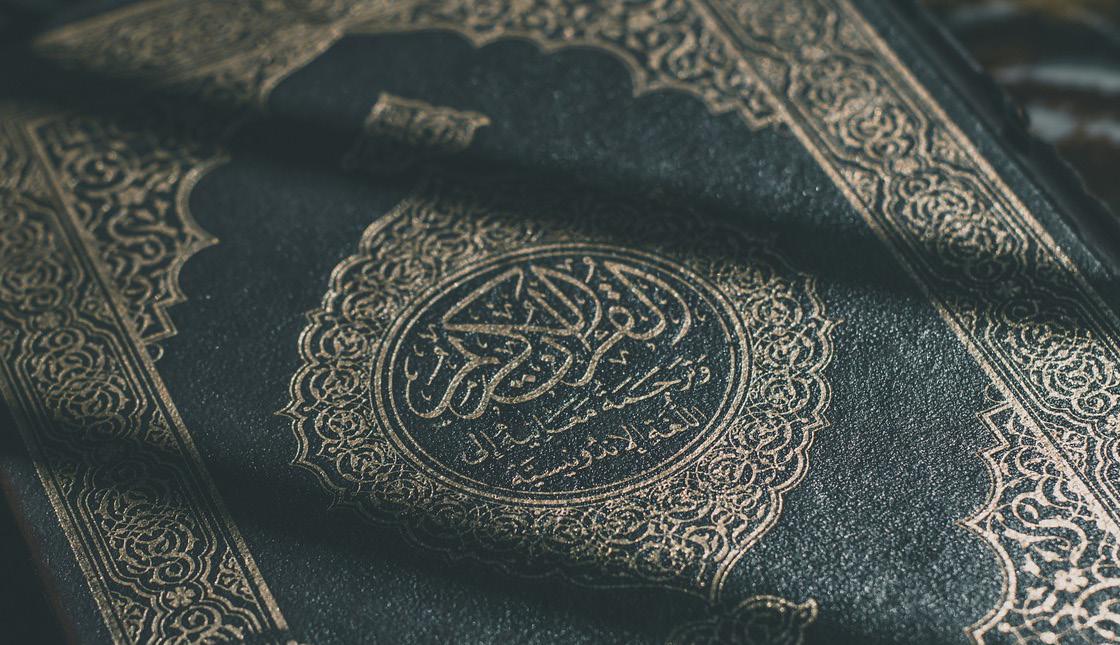
And it is noteworthy to mention that 2 verses later the definition of these oppressors is given in the following words:
“Did you not swear before this that you would have no fall?”[16]
Hence, no matter what claim any oppressor makes, God is with those who are treated unjustly and wrongfully oppressed.
Therefore, as has been clearly explained through this evaluation conducted on the events of today against the Islamic Principles of War, it is distinctly visible that even within the confines of war, these are the principles which should be followed to keep the sanctity of women,
children, and even the dead in a war. And the false narrative being created in the media that the atrocities of October the 7th are in direct accordance with Islamic Teachings is a fallacy within itself because all atrocities regardless of who commits them, as has been proven by this article, are against the teachings of Islam. Not only is it hypocritical to label the actions of one day as heinous atrocities and ignore the atrocities of the proceeding +120 days, rather it is also religious prejudice to create this notion on the basis of one party's religion and not the other. Why is Judaism not blamed for the inexcusable actions of the Jews?
We certainly would never do that because all religions are from God, they are all pure, and no religion should be made a scapegoat for the politically driven actions of a select few.
نِمَ مَتَمَسَّقَ ا اؤْنَؤْ�تَ مَلوَ ا لَاوَزَ نِمَ مَکُل امَ لِبْقَ
46
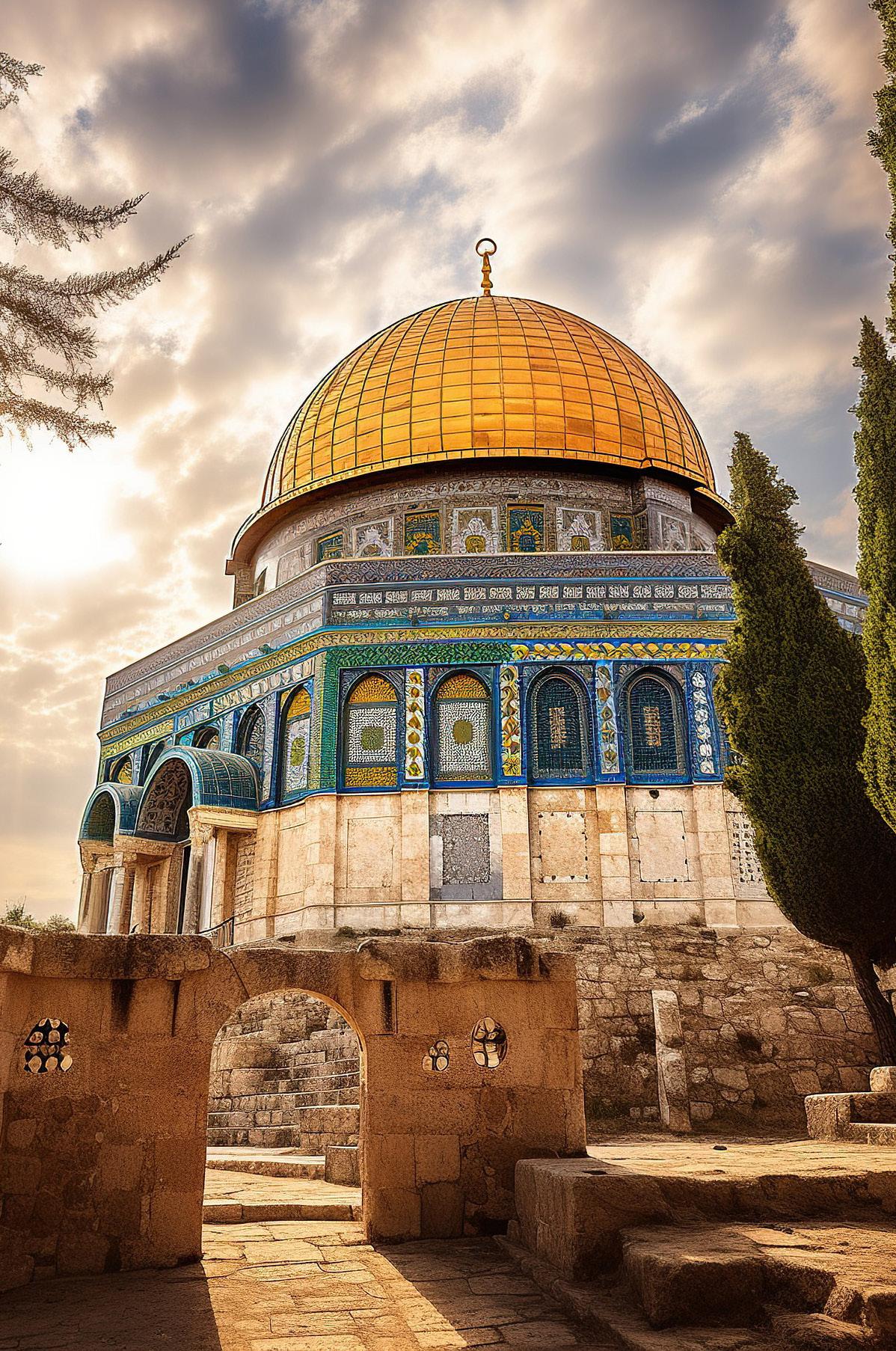
Refrences:
1. https://www.reuters.com/ world/middle-east/dozens-killed-gazaaid-queue-overall-death-toll-passes-30000-2024-02-29/
2. Surah Al-Ma’idah (5:33)
3. https://www.hrw.org/ news/2023/12/18/israel-starvation-used-weapon-war-gaza
4. Sahih Muslim, Kitab al-Jihad wa al-Siyar, Bab Ta’mir al-Imam al-Umara ‘ala al-Bu‘uth, Hadith No. 4522.
5. Imam Abu Ja’far Ahmad bin Muhammad al-Tahawi, Sharh Ma‘ani al-Athar – Volume 2, Kitab al-Siyar, Babal-Shaikh al-Kabiri Hal Yuqtalu fi Dar al-Harb am la, Hadith No. 5067 (Lahore, Pakistan: Maktabah Rahmaniyyah), 126.
6. Sunan Abi Dawud, Kitab al-Ji-
had, Babu fi Du‘a al-Mushrikin, Hadīth No. 2614.
7. Al-Hajj (22:40-41)
8.
a. Tārīkhur-Rusuli Wal-Mulūk (Tārīkhuṭ-Ṭabarī), By Abū Ja‘far Muḥammad bin Jarīr Aṭ-Ṭabarī, Volume 3, p. 29, Thumma Dakhalatis-Sanatuth-Thāniyatu Minal-Hijrah / Dhikru Waq‘ati BadrilKubrā, Dārul-Fikr, Beirut, Lebanon, Second Edition (2002)
b. As-Sīratun-Nabawiyyah, By Abū Muḥammad ‘Abdul-Mālik bin Hishām, p. 424, Dhikru Ru’yā ‘Ātikata binti ‘Abdil-Muṭṭalib / Islāmubni Ḥizām, Dārul-Kutubil-‘Ilmiyyah, Beirut, Lebanon, First Edition (2001)
9. Al-Muwaṭṭā, By Imām Mālik bin Anas, Kitābul-Jihād, An-Nahyu ‘An Qatlin-Nisā’i Waṣ-Ṣibyān….., Ḥadīth No. 982
10. Al-Baqarah (2:191)
11. Hazrat Mirza Bashir Ahmad M.A.(ra), The Life & Character of the Seal of the Prophets Vol. II (Tilford, Surrey: Islam International Publications Ltd., 2013), Pg. 49-51.
12. https://www.reuters.com/ world/middle-east/gaza-mediators-search-final-formula-israel-hamas-ceasefire-2024-02-07/
13. Al-Fatḥ (48:2)
14. Al-Anfal (8:62)
15. Surah Ibrahim (14:43)
16. Surah Ibrahim (14:45)
47
Waqf-e-Nau Ijtema Report Bangladesh - 05 May 2024
Hasib Ahsan Ratan
Secretary Waqf-e-Nau Bangladesh
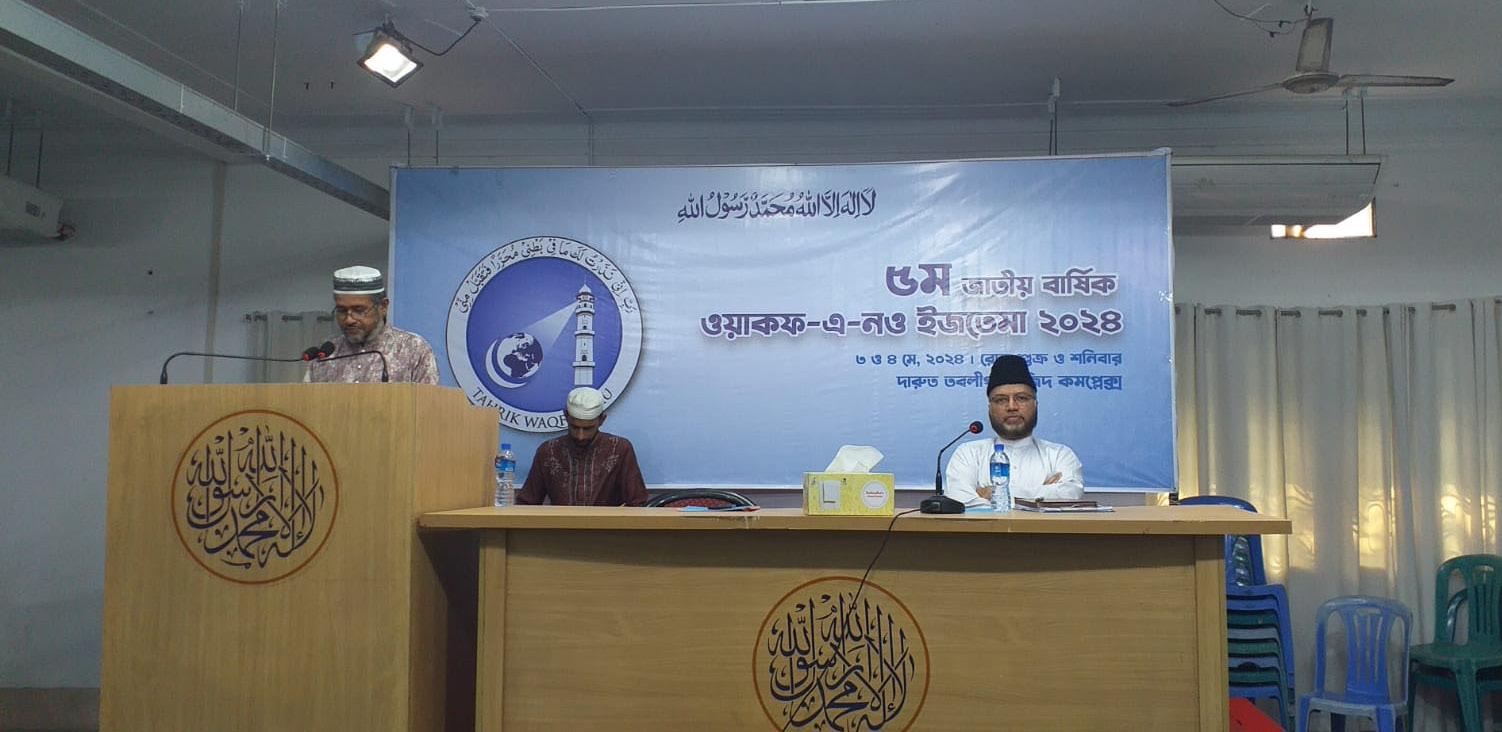
It is our immense pleasure that we have had our 5th National Waqf-e-Nau Ijtema 2024 on last 3rd and 4th May 2024 at our central mosque in Dhaka. Furnished below the report on the Ijtema for your ready reference.
According to the registration records the total number of participants were 443 from 35 Jamats including Waqf-eNau male and female members along with their parents and some kids. It is reported that there are ±100
participants were not done their registration. It would be much higher participants number but as it is hostile weather (extreme hot) across the country, financial scarcity and and service holder Waqf-e-Nau members were not get leave from there organisation thus this number is poor. We have displayed the key notes of your Friday sermon delivered on 28 October 2016 through the PowerPoint presentation on 3 May 2024. We have also conducted quiz competition
48
among the parents and rewarded them instantly. On the following day 4 May 2024 we have shown uncut your Friday sermon delivered on 28 October 2016 through YouTube in Bangla language. We have also conducted quiz competition among the Waqf-e-Nau members (both male and female) and rewarded them. On the very first day we have demonstrated our waqfeen-eNau Bangladesh website and YouTube channel and encourage the audience to visit and watch this on a regular basis. We have conducted various types of competitions (9 types) and rewarded both male and female Waqf-e-Nau members. Our national Amir Shahib has delivered his valuable speech addressing to all participants on first day morning in our opening session. At evening he has conducted a Q&A session with Waqf-e-Nau members (both male and female) and also delivered his speech in the concluding session.
In the 2nd day afternoon, Respected Luqman Ahmed Kishwar Sahib, Incharge Waqf-e-Nau International Office delivered his speech addressing to all participants which was translated by Ahmad Tareque Mobashsher Shahib, Bangla Desk, London through virtual connections. This speech was very insightful. All participants were enjoyed this speech and noted every key points.
On this occasion we have published a magazine named Ismail and Moriam which we have sent to eloved Huzooraa.
We sincerely request beloved Huzooraa for prayers, for all Waqifeen-e-Nau members of Bangladesh.
We are sincerely praying for beloved Huzoor'saa good health, work and full energetic long life.
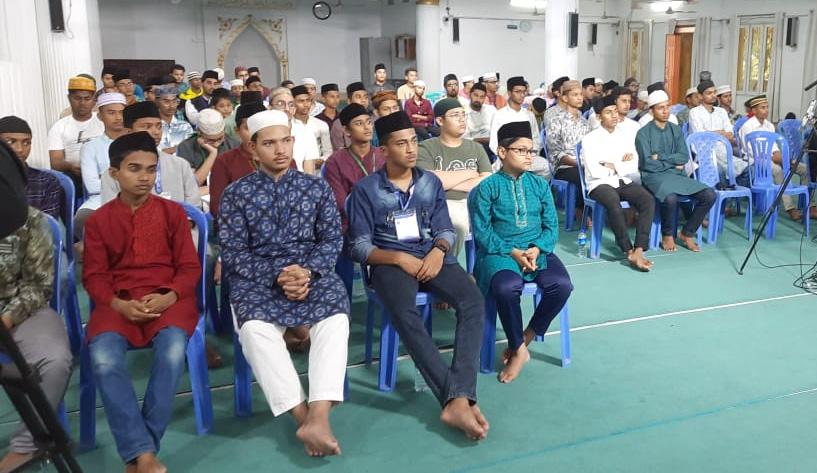
49
MTA USA Spring Break Bootcamp 2024
Ghaalib Khan
Serving as Head of MTA USA Studios
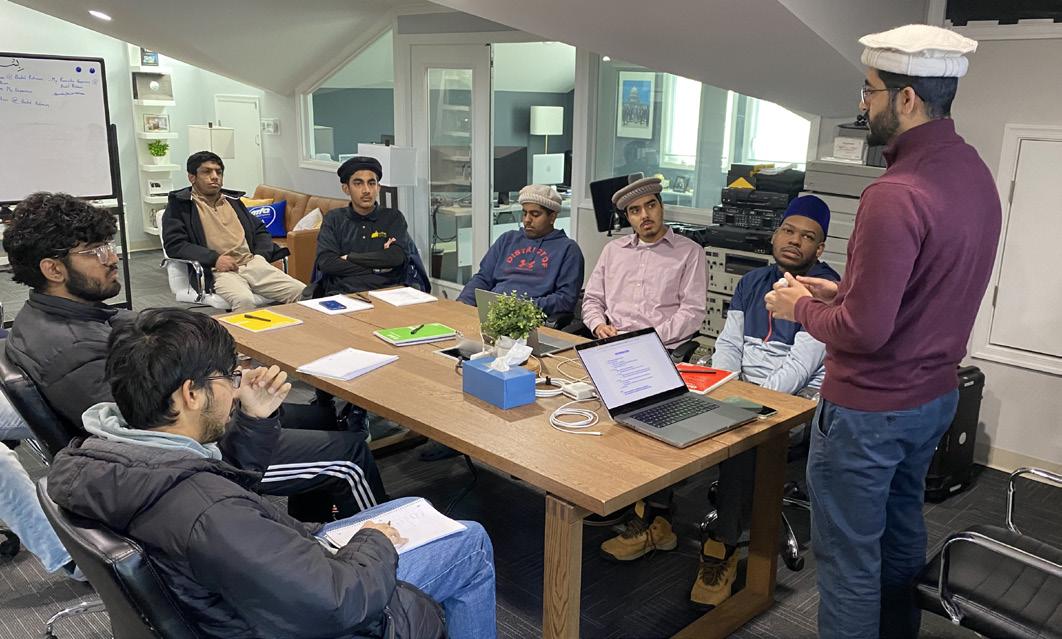
As part of our ongoing national development program, mta international usa studios arranged our second 4- day Waqf-eArzi training course for Waqifeen in America. this took place from march 24th-27th, 2024 at the national headquarters in Maryland.
By the Grace of Allah, the feedback from participants was very positive. Within 4 days, we were able to provide a complete beginner’s guide to producing a short video through the stages of pre-production, production and
post-production.
Event Highlights
Number of participants: 9
Number of Training Days: 4
Number of Khuddam: 6
Number of Atfal: 3
Location: MTA Masroor Teleport, Baitur Rahman Mosque Pre-Planning
The first Waqf-e-Arzi training camp held by MTA International USA Studios took place in 2023 with 6 Khuddam from New York. This allowed myself and Murabbi Omar Farooq sahib to develop the training material and gain experience in conducting the course.
This year, during the academic Spring Break in March, we held our second Waqf-e-Arzi MTA Bootcamp. The National Waqf-e-Nau department ad-
50
vertised the bootcamp on their Waqfe-Arzi online portal and also sent out a national email to promote it. We had 15 applicants from across the country and therefore this time we increased the number of participants from 6 to 9. This group consisted of 6 young Khuddam and 3 older Atfal.
I am grateful to the national Waqf-eNau department for helping to coordinate the camp and for the national General Secretary’s office for granting permission for some of the participants to stay overnight at the Baitur Rahman guesthouse.
Schedule
The 4 day course was divided into 3 days of tuition and 1 day for finalizing projects and review. The 3 days of tuition were divided equally to cover the 3 stages of video production, namely:
Participants
The following participants attended the training course and were split into 2 teams:
1. Ibrahim Dayisi - GA (Waqf-e-Nau)
2. Murtaz Ahmad - SVA (Tifl) (Waqfe-Nau)
3. Agha Muhammad Khan - SVA (Tifl) (Waqf-e-Nau)
4. Sameer Hameed - PA (Waqf-e-Nau)
5. Aayan Waqas - MD (Waqf-e-Nau)
6. Daniyal Malik - MD (Tifl) (Waqf-eNau)
7. Ibaad Ahmad - MD
8. Shayan Aslam - MD (Waqf-e-Nau)
9. Eakaun Mallik - MD
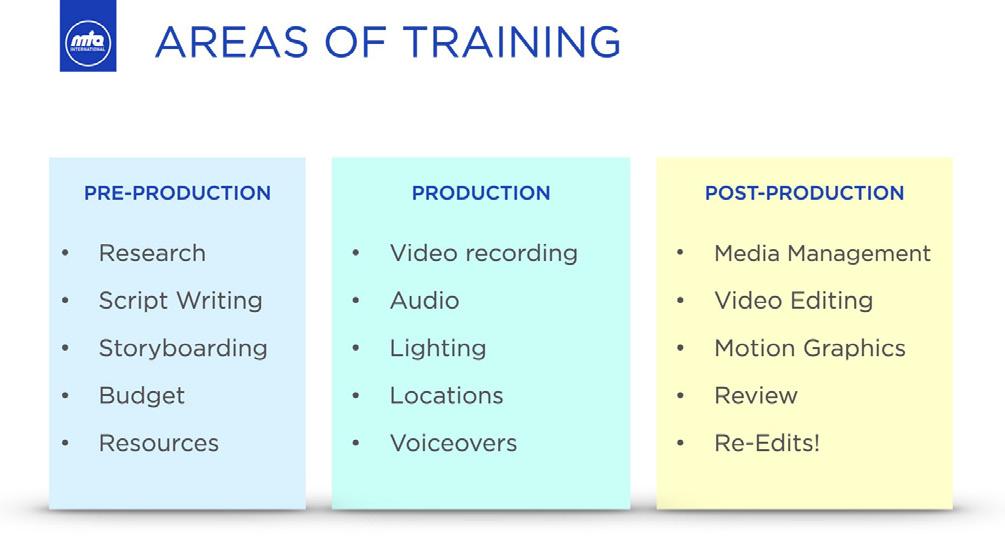
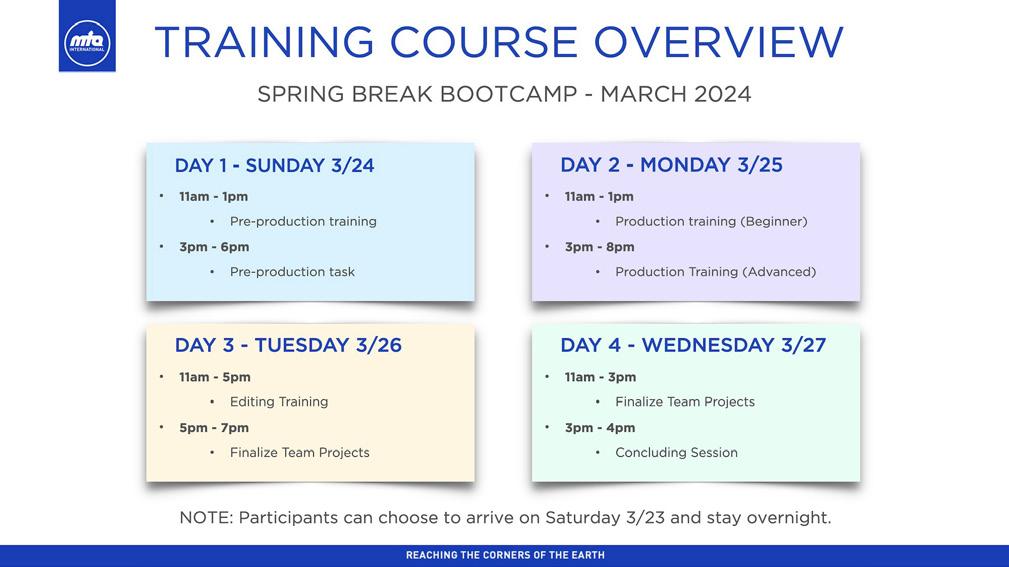
Content
Pre-Production
The first stage in producing a video is to plan out what you are making. This allows you to discuss ideas amongst the team and decide on the direction, theme and style of your proposed video. Murrabi Omar Farooq sahib lead the section on pre-production and explained why and how it should be done. We discussed the differences between the documentaries and news reports, and how each is produced in MTA. The teams were then tasked with planning their video projects.
The 2 teams were given basic training on how to use our MTA Sony FS5 cam-
51
eras. Both teams were given the same camera body and lens. I showed participants the contents of our camera kits and gave training on how to build the cameras with lenses, SD cars, batteries and microphones.
The teams were first allowed to film on full-auto settings, after which we taught them how to use manual focus, manual ISO and how to use ND filters to avoid over-exposing their recordings.
I guided the teams in how to film in different styles depending on the type of video they were trying to produce. Team A were given a GoPro to achieve the POV shots they had planned. The teams were then given free time for them to record all the necessary scenes that they had planned in the pre-production process. They successfully recorded creative footage of the mosque, worshippers, ziafat staff, as well as recording interviews and actors in their respective videos.
Summary of production skills that were taught:
- Understanding lenses (aperture, ND filters, focal lengths)
- How to create shallow depth of field
- Connecting Microphones using XLR cables
- Correctly using a tripod (pans, tilts, adjusting balance)
- Correctly using lights to film an interview (3-point setup and 1-point setup)
- How to add depth in a scene using leading lines and perspective.
- Introduction to drone videography.
- Recording voiceovers
POST-PRODUCTION
On the 3rd day we gave an introduction to video editing. Both teams were shown how to setup a project in Adobe Premiere and how to import the footage they had recorded.
During their lunch break, we watched examples of MTA News reports and documentaries to analyze how they had been edited and what editing concepts had been implemented. Each team chose a primary editor, while the other team members gave their input and supported where needed. Our local editing volunteer Muaz Malik was on hand to give technical support, and Omar sahib helped to guide the teams in editing their content.
TRAINING TASK
The two teams were tasked with producing a 3-5 minute video about Ramadan at the Baitur Rahman Mosque. The requirements were that the video had to be within the target duration, had to be recorded on-site and could only include 1 minute of pre-recorded stock footage from the MTA servers. Team A (Sameer, Agha, Murtaz, Ibrahim and Daniyal) decided to make a narrative POV video following a Tifl during a typical Ramadan day at the Mosque.
Team B (Aayan, Shayan, Ibaad, Eakaun) produced an in-depth news report about Ramadan arrangements
52
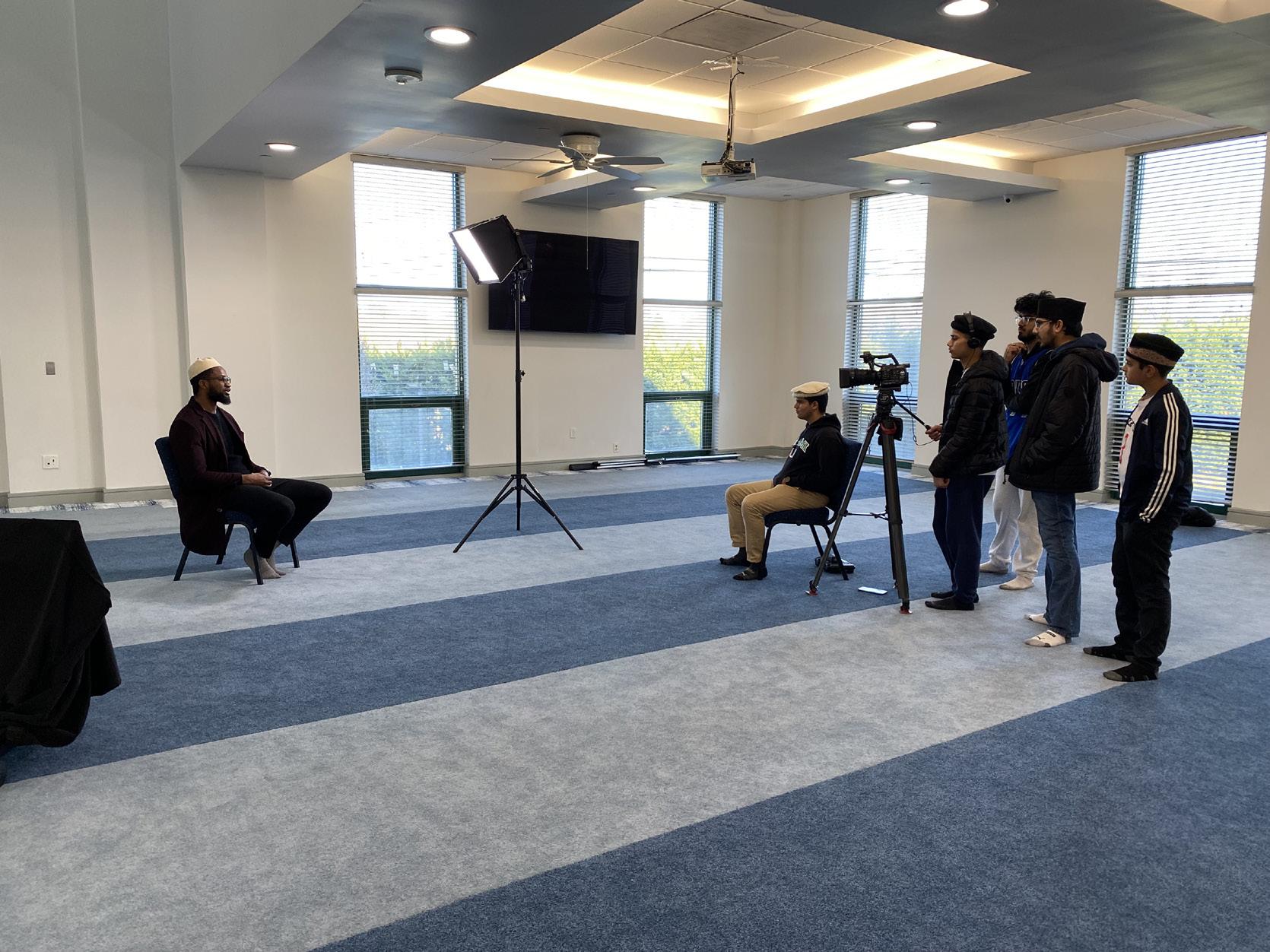
at Baitur Rahman and what makes it special for attendees. This included covering Iftar arrangements, Darsal Our’an and Taraweeh.
TRAINING OUTCOMES
The desired long-term outcome of this training course is to raise the profile of MTA USA amongst Waqifeen and to show them what life is like as a Waqf-e-Zindagi, producing video content that highlights the true teachings of Islam.
The short-term outcome is to teach these basic skills a few weeks prior to Jalsa Salana USA so that the 4 Khuddam from this team who will volunteer with us have a revision of video pro-
duction theory and practice.
FORMAT
Each day was divided into formal presentations teaching the theory and then time was allocated to practically implement this new knowledge. It is hoped this format would help the participants put the theory into practice, thus becoming more likely to remember it.
OUTCOMES
VIDEO PRESENTATIONS
I was impressed with the production quality and creativity shown by both teams in their final video presentations.
53
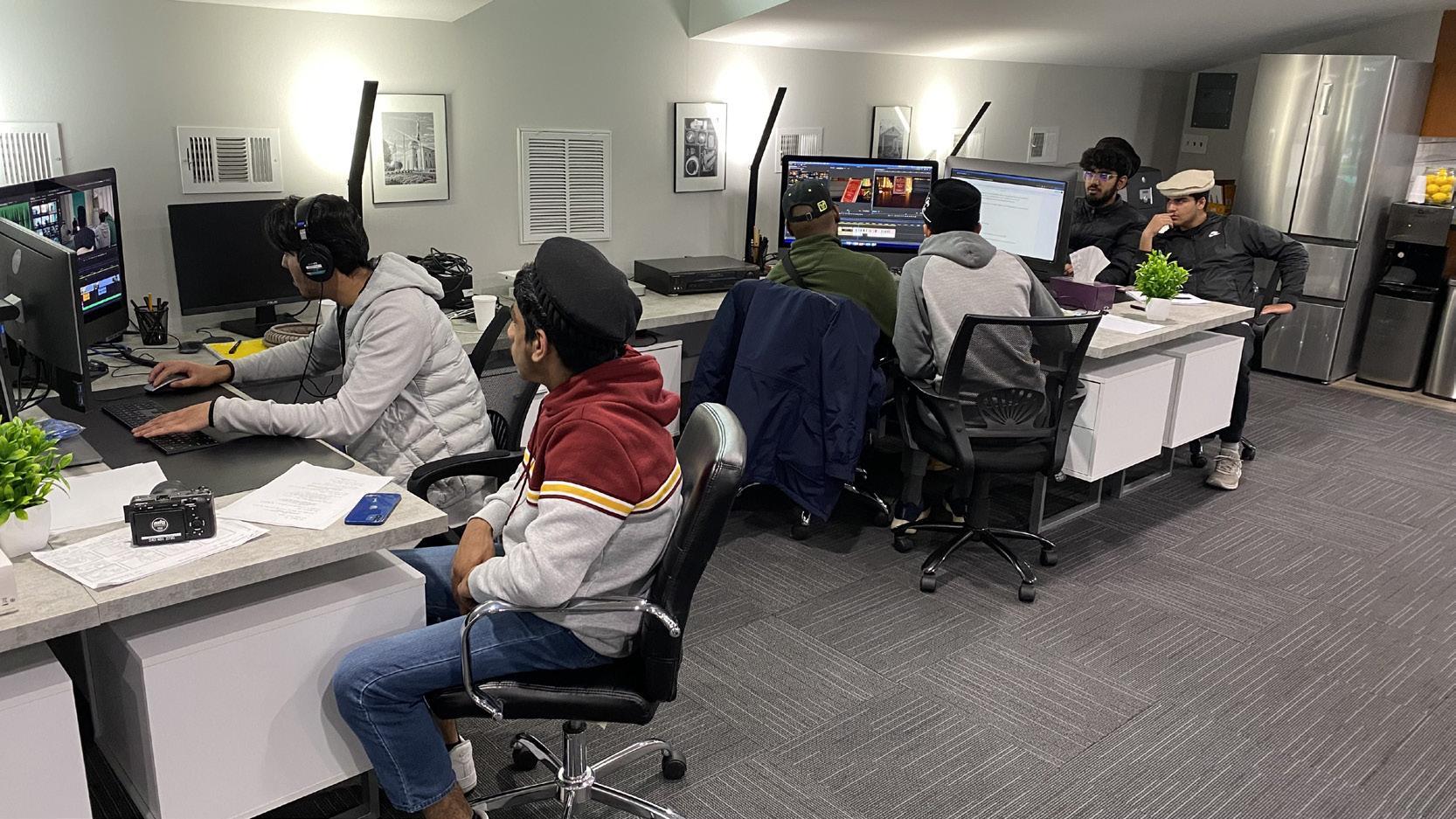
Team A made a short narrative video, following one Atfal talking about his typical day at the Mosque during Ramadan from his own personal perspective. They planned out their storyboard and shot list very well and this helped them film and edit everything within the required time. However their script was very sparse and they could have added a lot more content explaining the religious or philosophical aspects of Ramadan.
Team B had a less detailed production plan but they filmed a lot more content with 4 interviews and a host in different locations. They filmed a good amount of b-roll of different activities but their editor Aayan struggled in getting everything edited in time. They ultimately ran out of time and hadn’t included a lot of the shots they had filmed.
In the concluding session we reviewed both videos as a group and discussed
feedback to assess which parts were good and which could have been improved.
CONCLUSION
By the Grace of Allah, this spring break Waqf-e-Arzi bootcamp was a success in every way. I feel it achieved the purpose of introducing new Khuddam to the basics of production, so that some of them would be inspired to join MTA USA. The skills we taught them can be implemented no matter what equipment they use in the future. Many of the participants said they now have a greater appreciation for the amount of work involved in producing videos for MTA.
The second successful outcome of this training session was to raise awareness about MTA USA’s ongoing development and training programs. Jamaat members at Baitur Rahman Mosque
54
saw the teams filming during spring break and many commented that they were happy to see new volunteers coming to the national headquarters for training. We now have a good training course outline that can be replicated regularly. We plan to have our next training bootcamp in the summer break just before Jalsa Salana to help produce video content for our Jalsa broadcast.
A letter requesting special prayers was submitted to Hazrat Khalifatul-Masih V (aba) which was acknowledged by Beloved Huzoor.
REDBOOK ITEMS
- Participants were happy with the accommodation in the guesthouse. Basic breakfast items were purchased
for them and one special Iftar dinner was arranged on behalf of the national Waqf-e-Nau Department
- For the future, participants should be gifted a special MTA branded notebook and pen that they can use throughout the bootcamp and keep afterwards.
ACTION ITEMS
- Invite participants to join the follow-up session in summer before Jalsa Salana.
- Provide career advice and mentorship to the participants who are interested in developing these skills further.
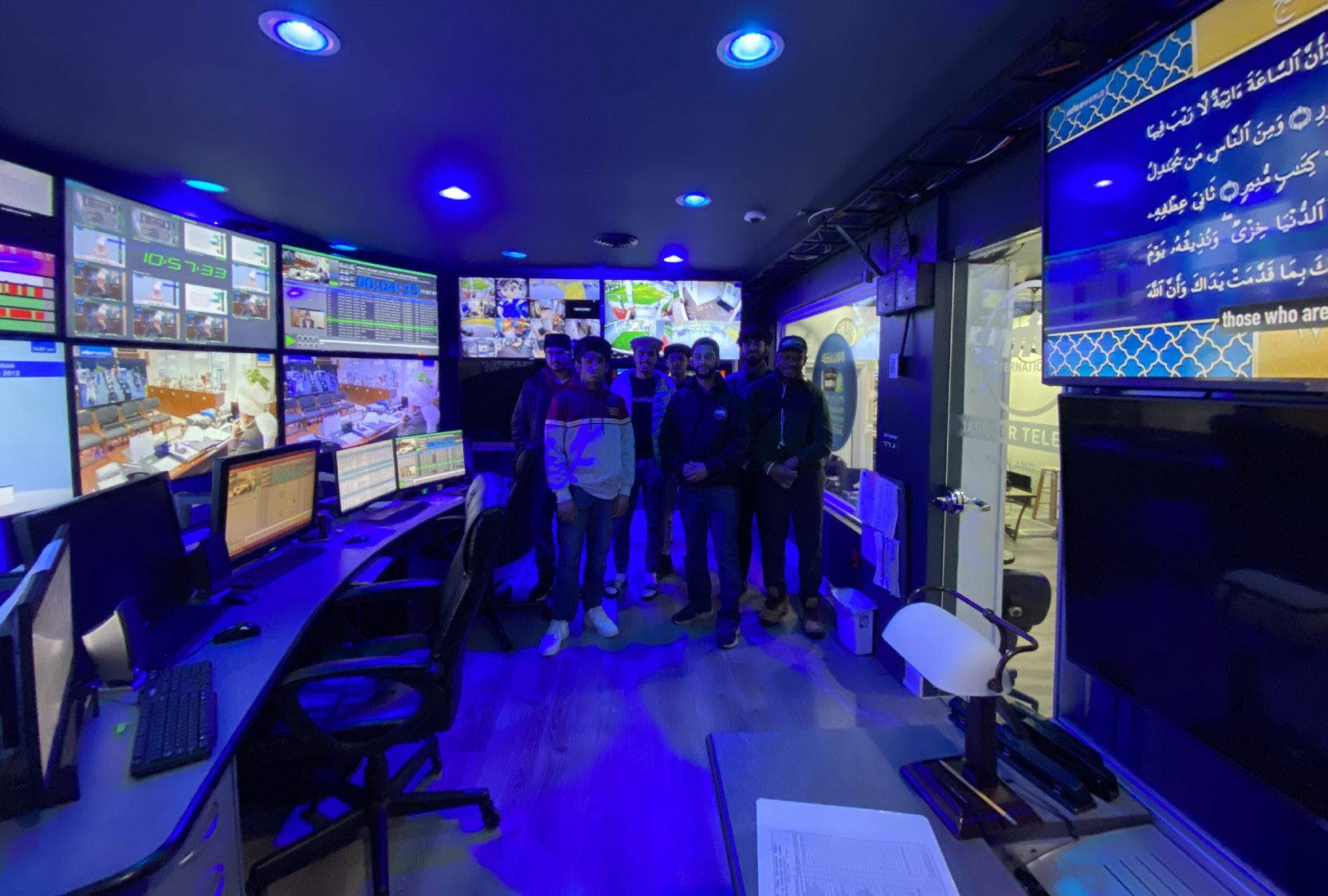
55
National Waqf-e-Nau Ijtema
New
Zealand
Muhammad Yaseen Chaudhry
Waqf-e-Nau Department New Zealand

to hold its annual Waqf-e-Nau Ijte ma for Waqifeen-e-Nau and Waqifaat-e-Nau at Baitul Muqeet Mosque in Auckland. Preparations for the event began several weeks ahead, forming a National Ijtema committee led by respected National Secretary Waqf-eNau, Muhammad Yaseen Chaudhry Sahib. The committee put in tremendous effort to organise a distinctive and customised Ijtema to meet the requirements of Waqifeen-e-Nau across various age groups. A letter was also sent
lah be his Helper) seeking prayers for the success of the Ijtema.
The event began with the recitation of the Holy Quran, followed by a nazm, and an opening address by the National Secretary Waqf-e-Nau. In his speech, he introduced the programme and warmly greeted all attendees.
Following the opening session, Murabbi Mustenser Qamar Sahib delivered a presentation on Tabligh & Media. He
-
56
aimed to inspire everyone to convey the true message of Islam using contemporary media channels.
This year, the assessment for all Waqfe-Nau in age groups 1-4, 5-6, 7-11 and 12-15 was based on the Waqf-e-Nau syllabus.
For Waqifeen-e-Nau and Waqifaat-e-Nau aged 16 and above, a collective assessment quiz was conducted by Murabbi Mustenser Qamar Sahib on the book ‘Introduction to the Study of the Holy Quran’.
In a new addition to this year’s Ijtema, a presentation competition was introduced. Participants delivered presentations on various topics such as importance of Waqf, effective ways to serve the Jama’at, expectations from Waqifeen, and stories of Waqifeen. Presentations were evaluated in different age categories: 7-11, 12-15, and 16 years old and above. This new addition was well-received by all, with active participation and positive feedback from the attendees. A participating Waqf-e-Nau commented, “The Ijtema was very interesting this year as there were new competitions which made the Ijtema more exciting.”
As the event drew to a close, the atmosphere was filled with a sense of accomplishment. The concluding session was chaired by respected Bashir Ahmad Khan Sahib, the National Sadr Jama’at Ahmadiyya New Zealand. Tilawat and a Nazm were recited to start the session.
An Ijtema report was presented by Muhammad Yaseen Chaudhry Sahib, the National Secretary Waqf-e-Nau New
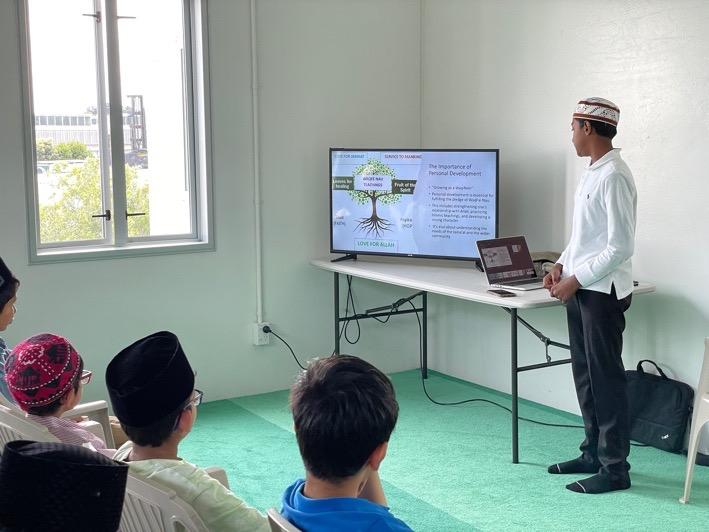
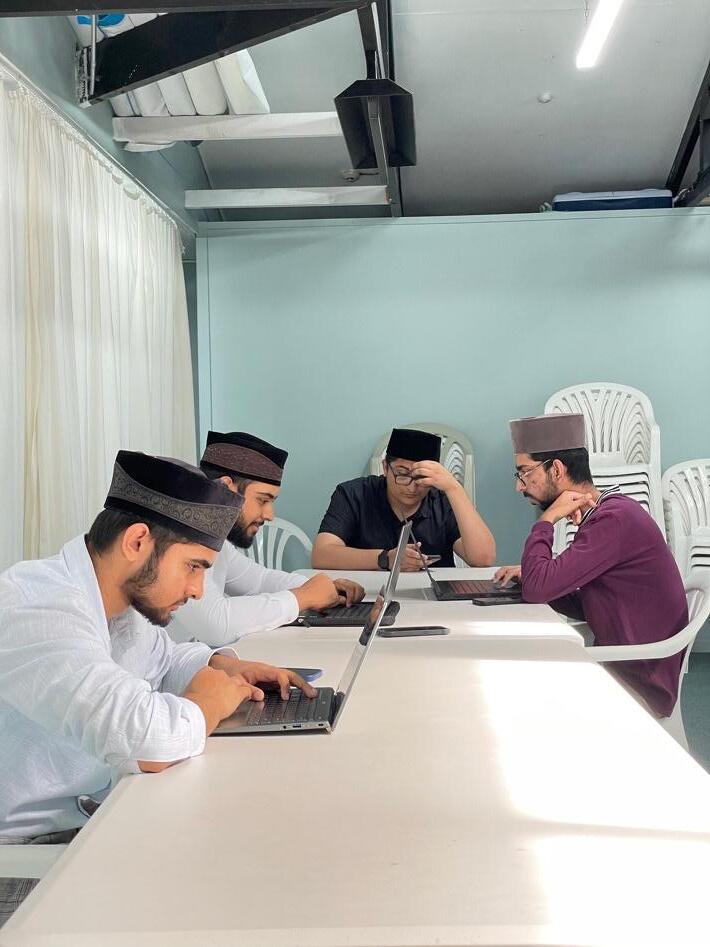
Zealand, who highlighted the success and shared valuable insights gained throughout the event, reinforcing the spirit of Waqf.
This was followed by the prize distribution ceremony. Winners were announced for the presentation competition, and the 16+ age group assessment. National Sadr Sahib delivered the closing speech and provided guidance to the Waqf-e-Nau on public speaking. The event ended with a silent Dua.
57
